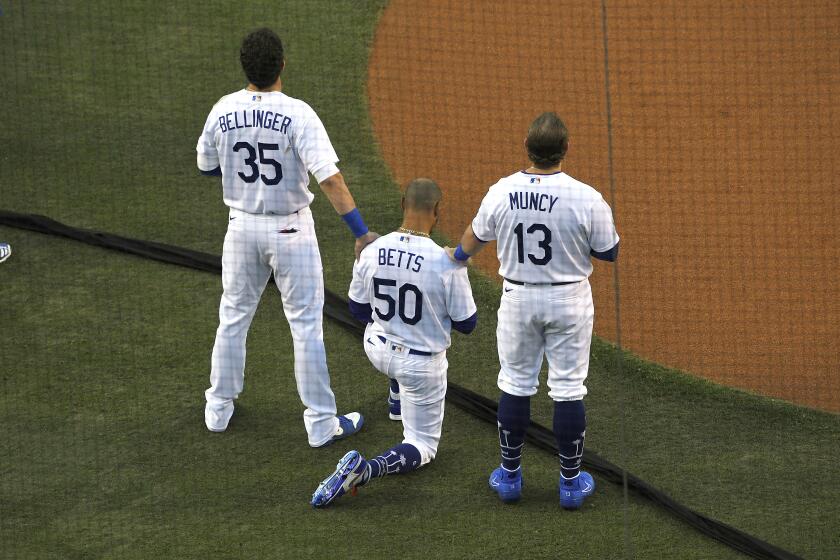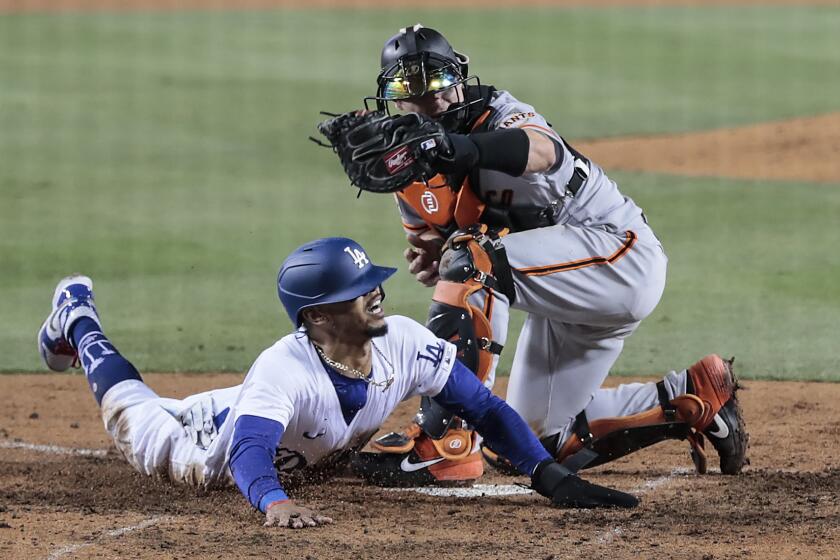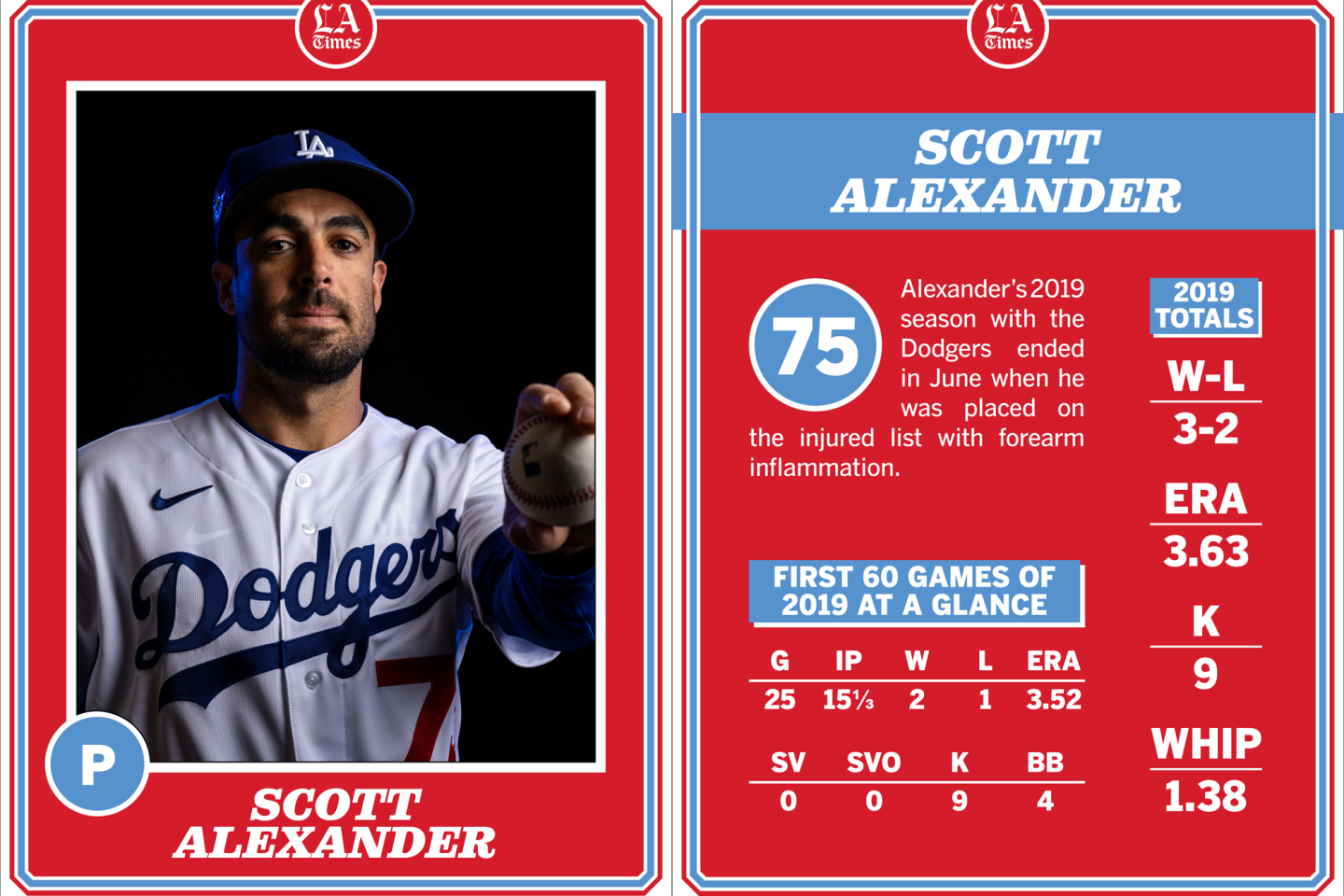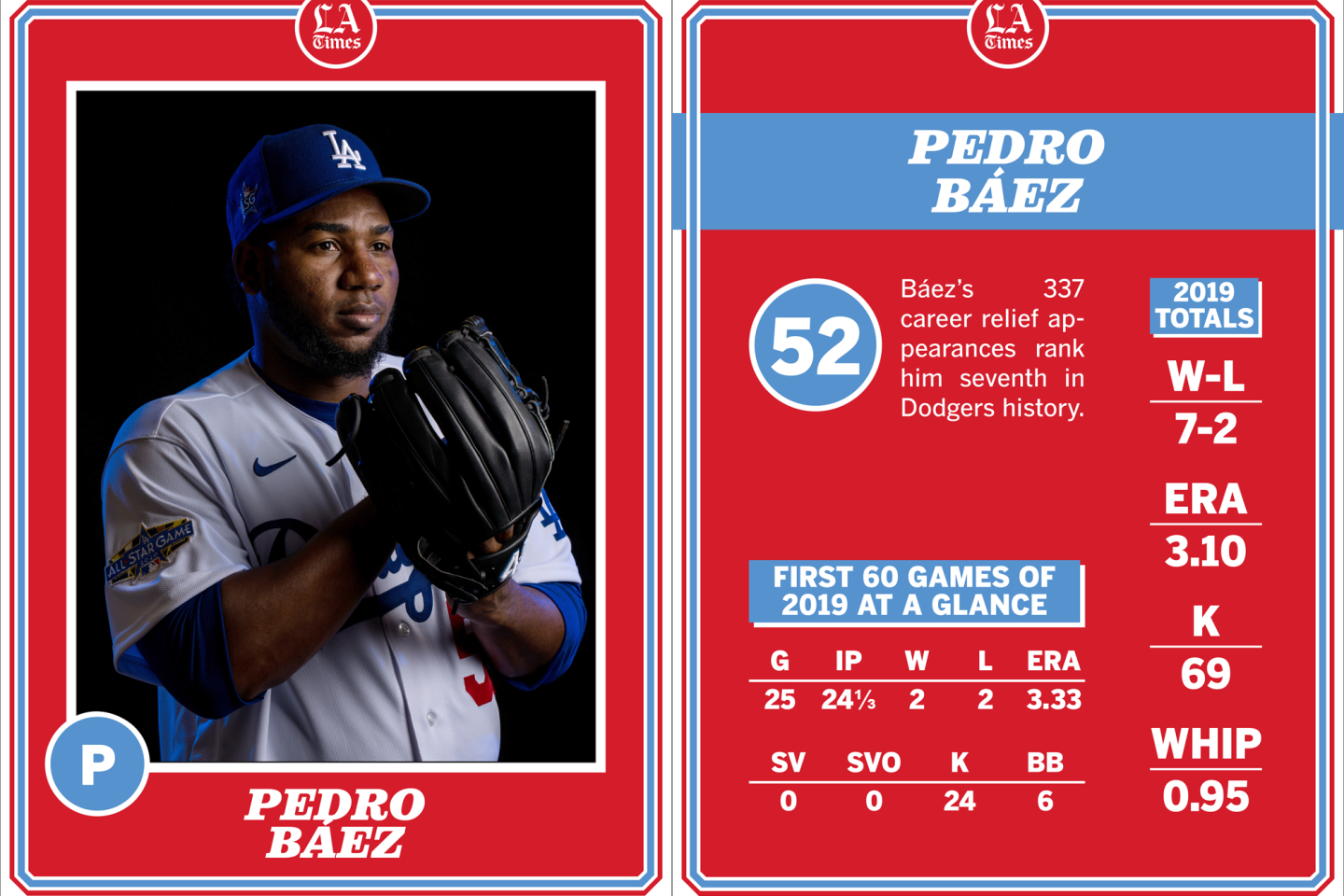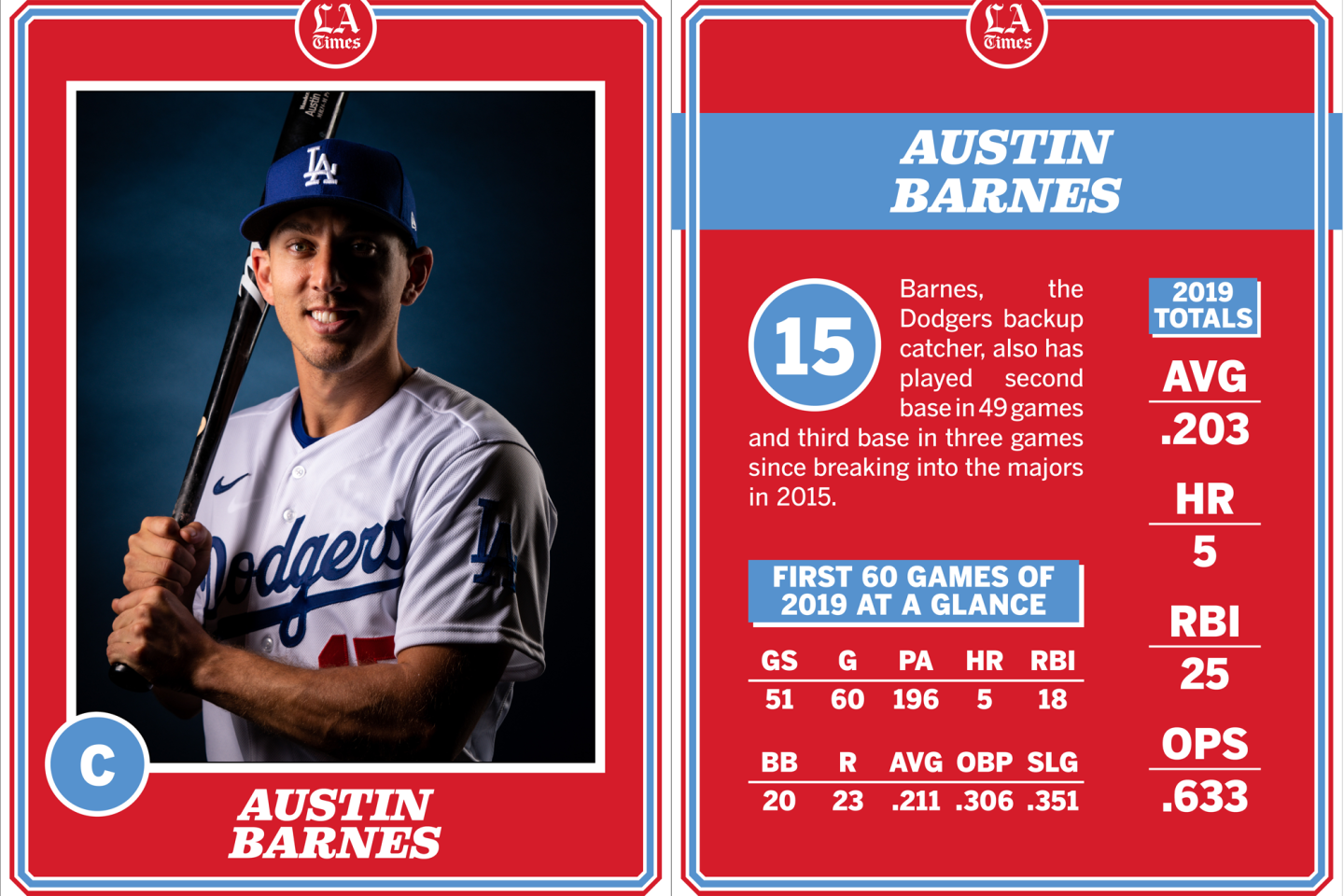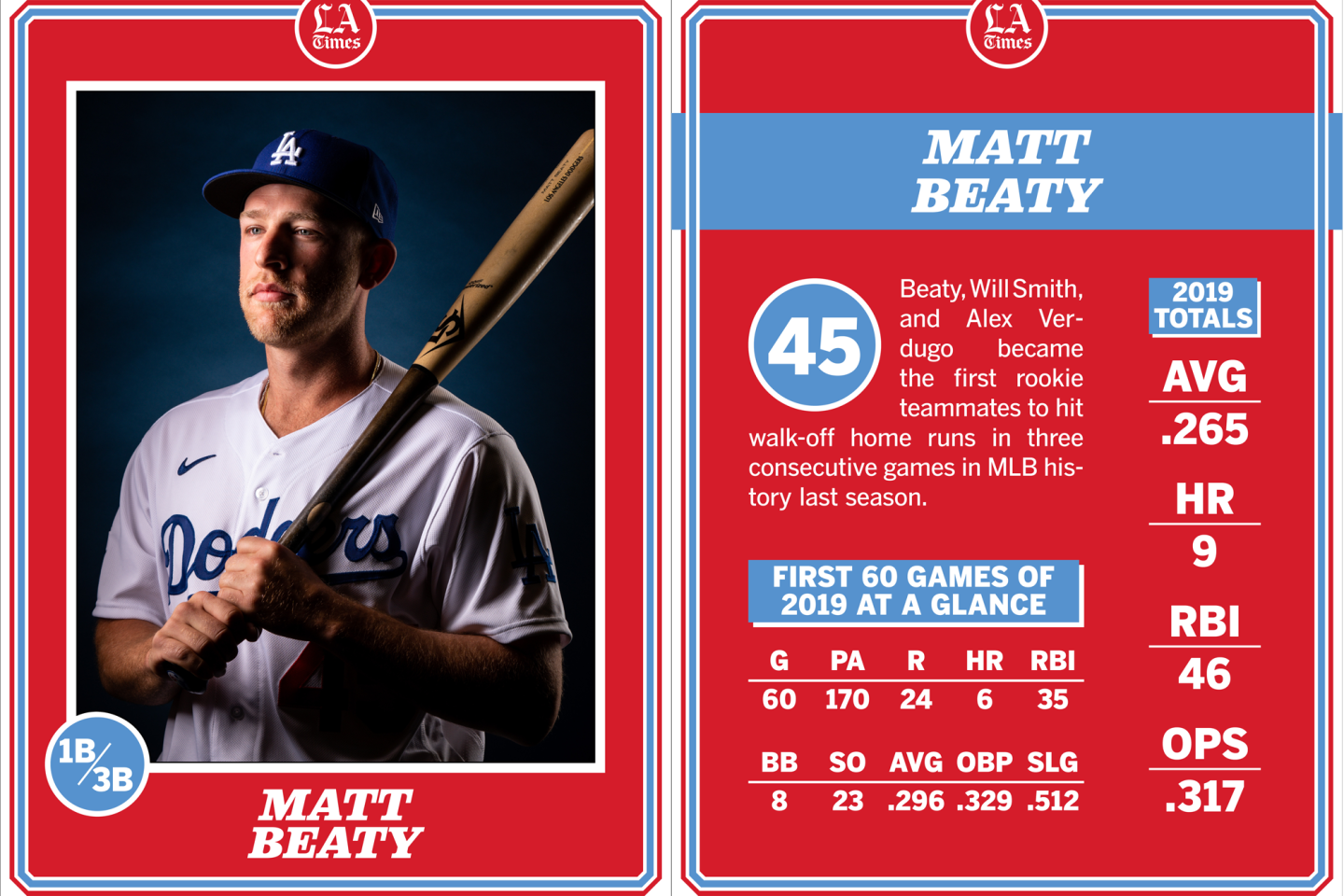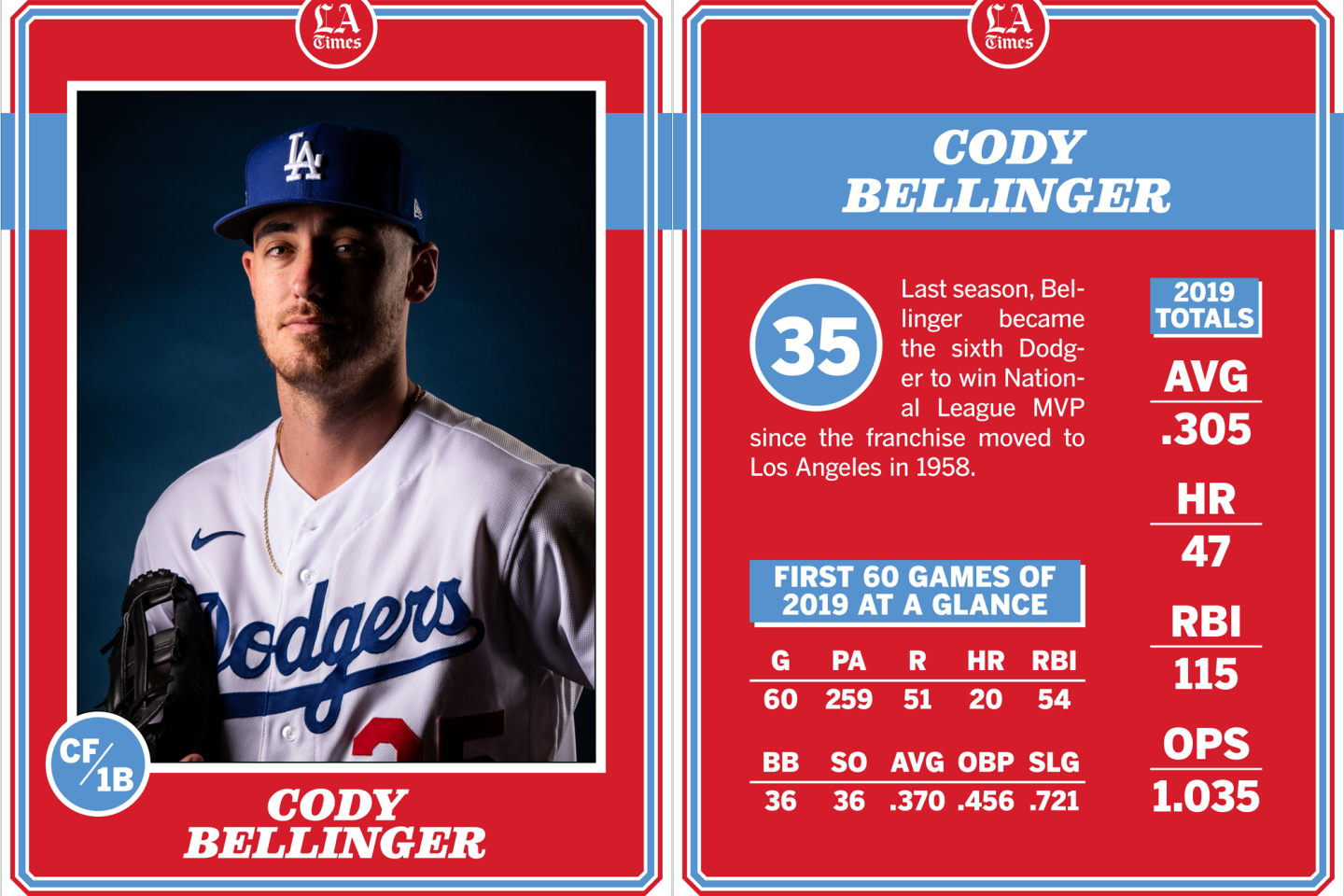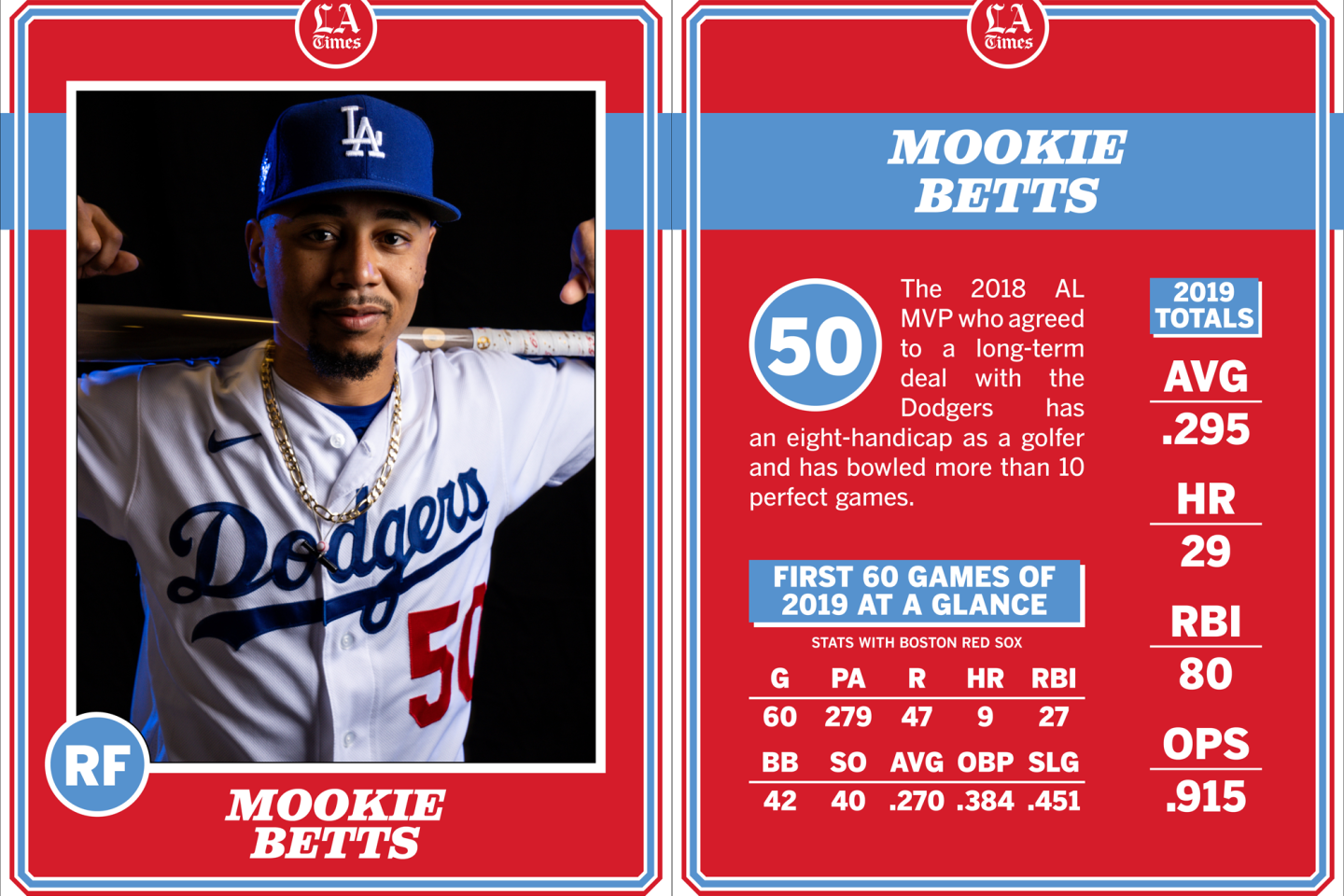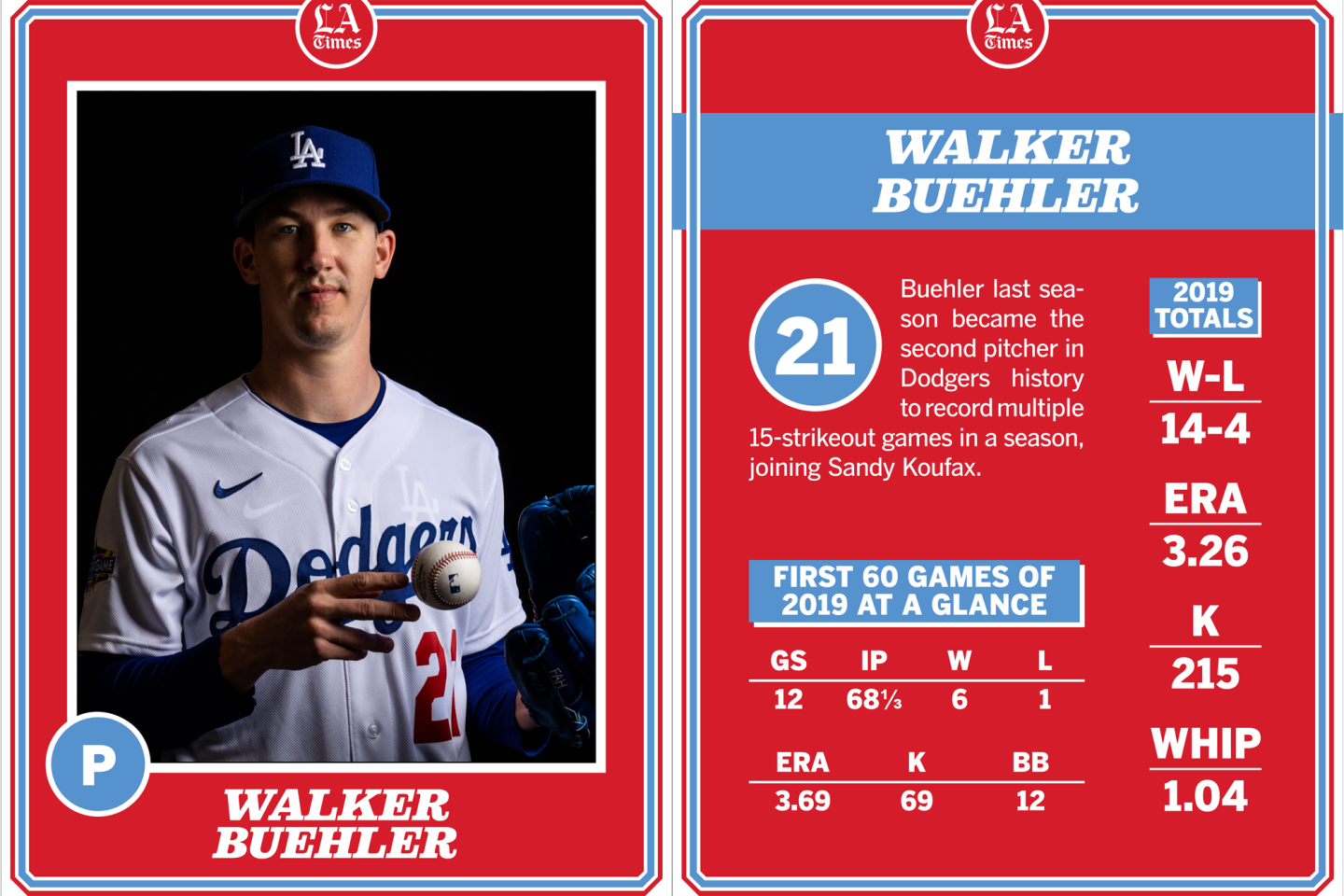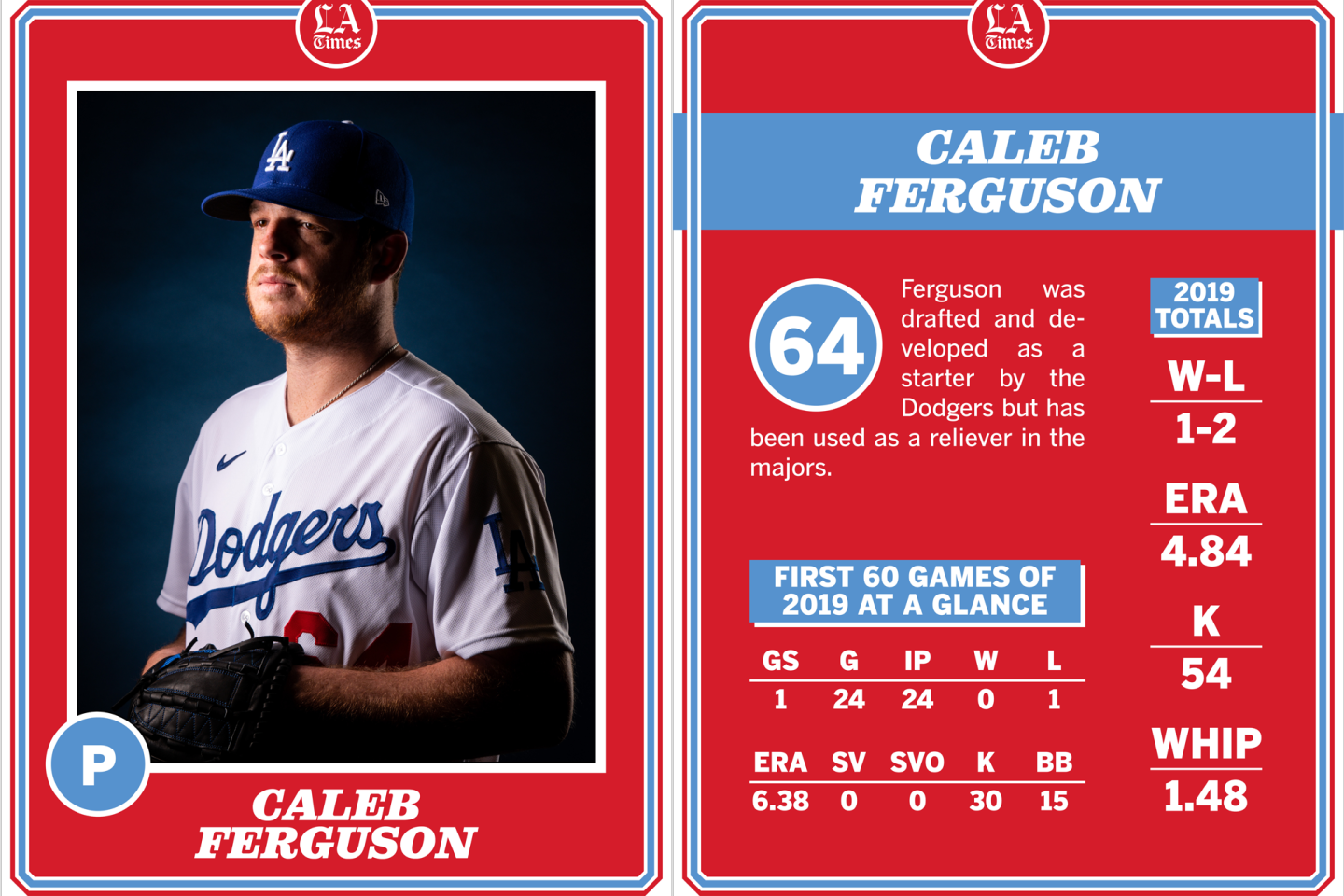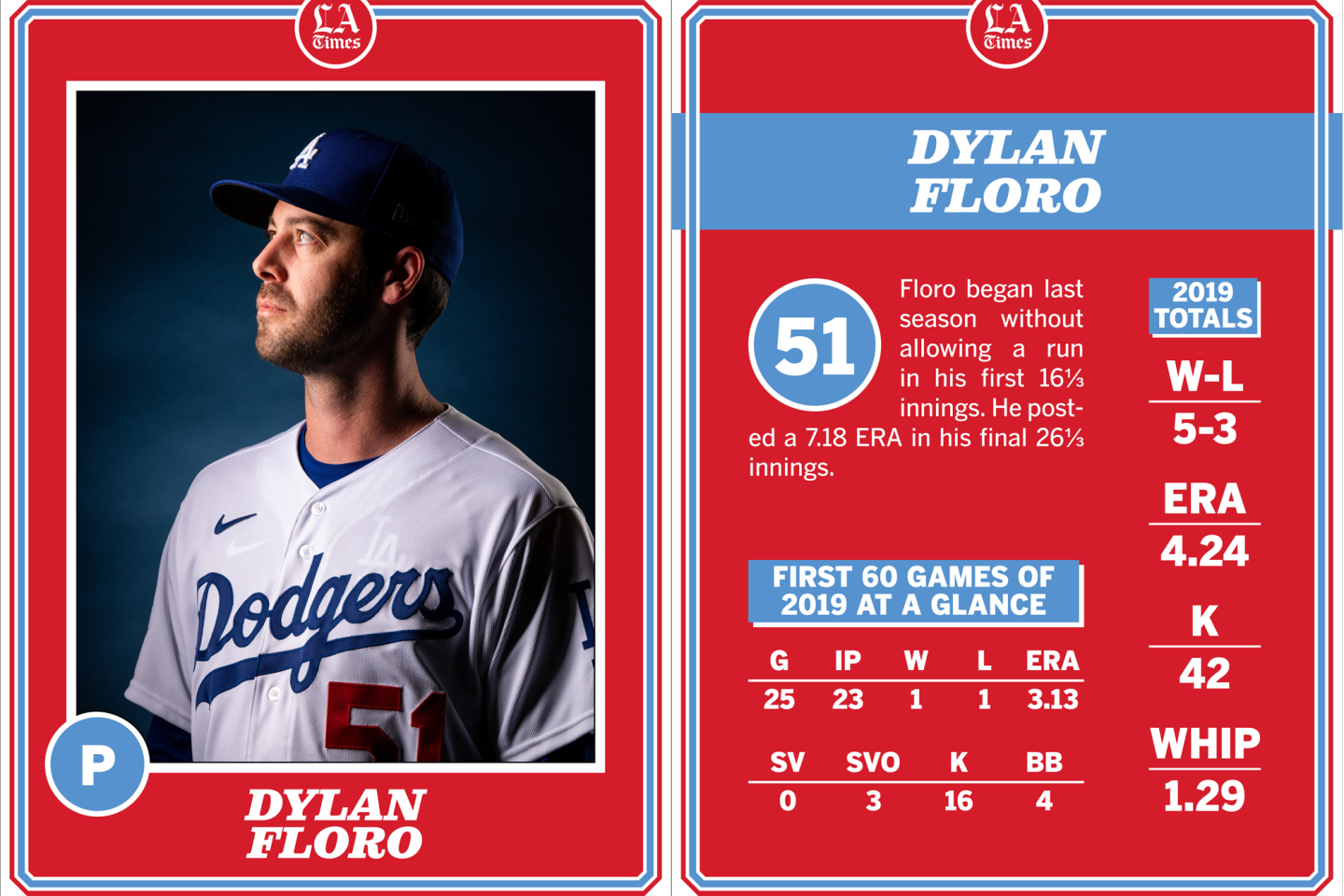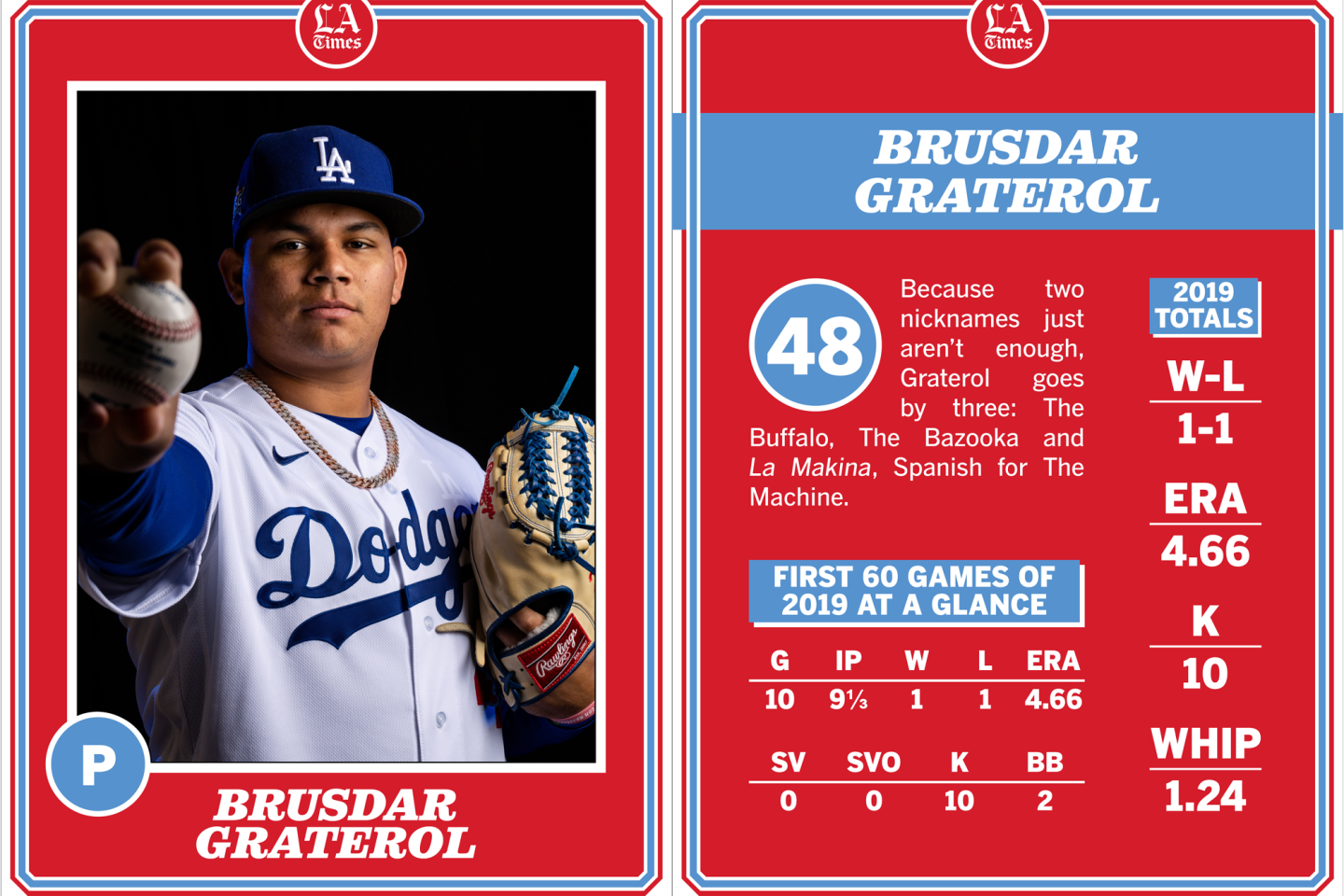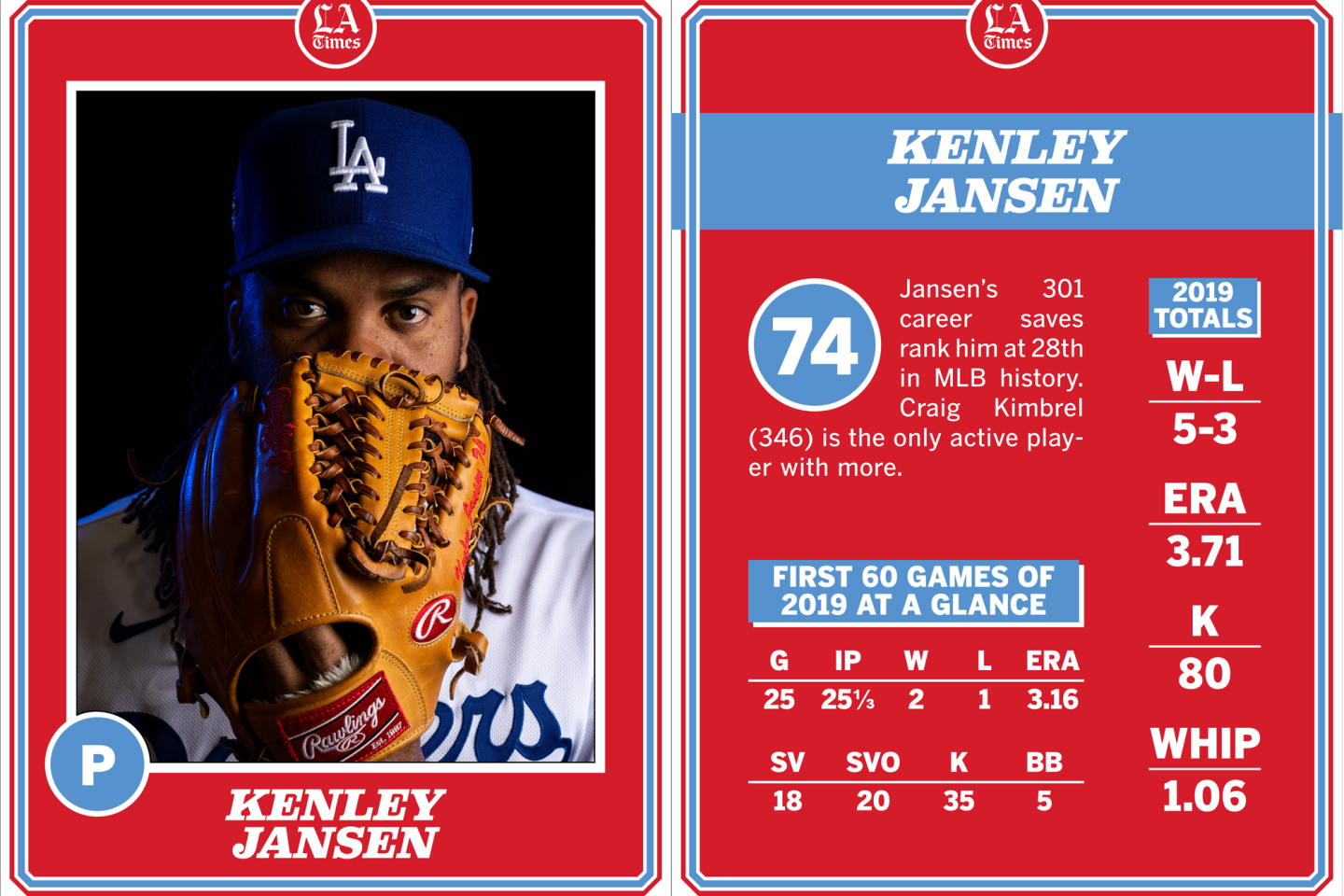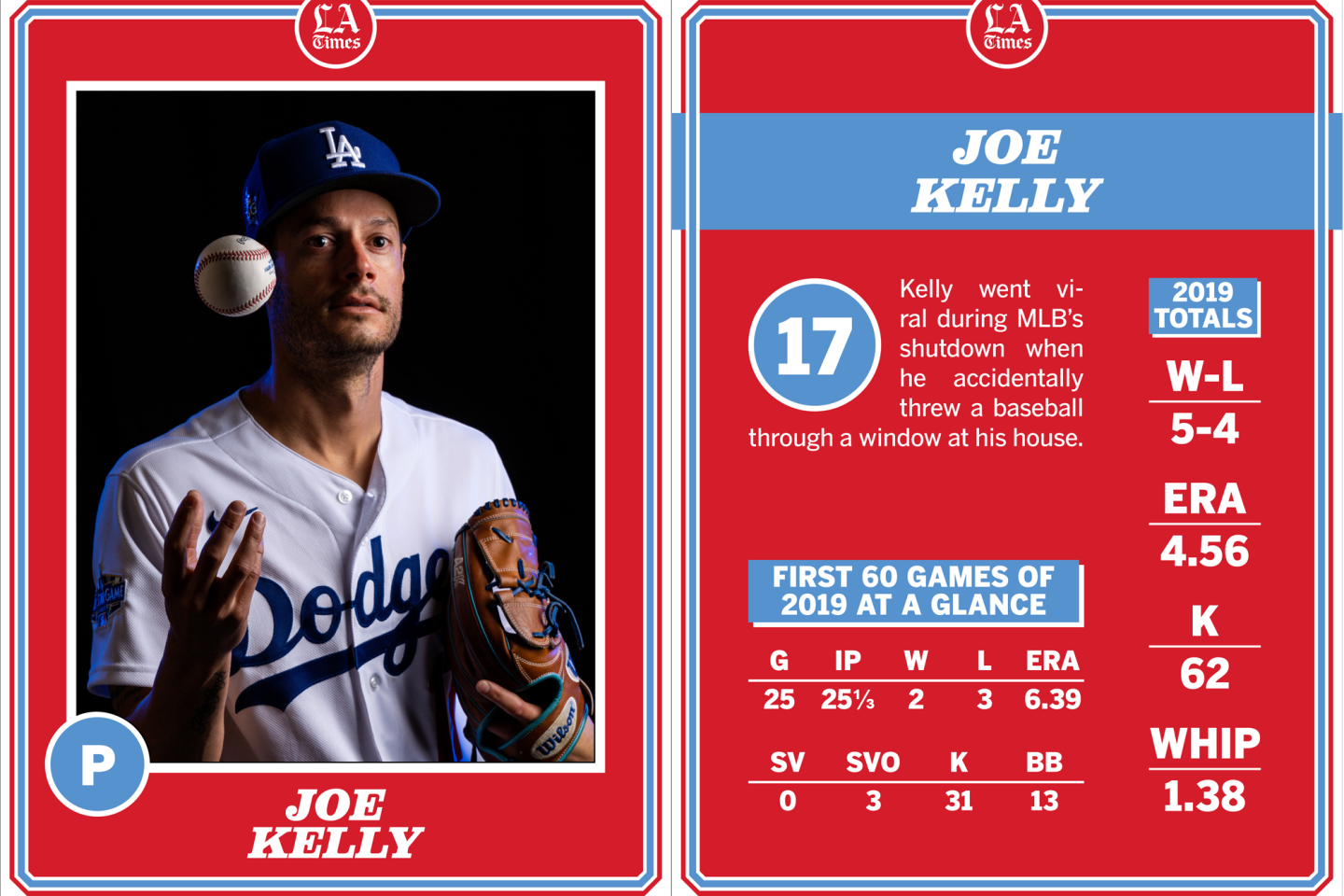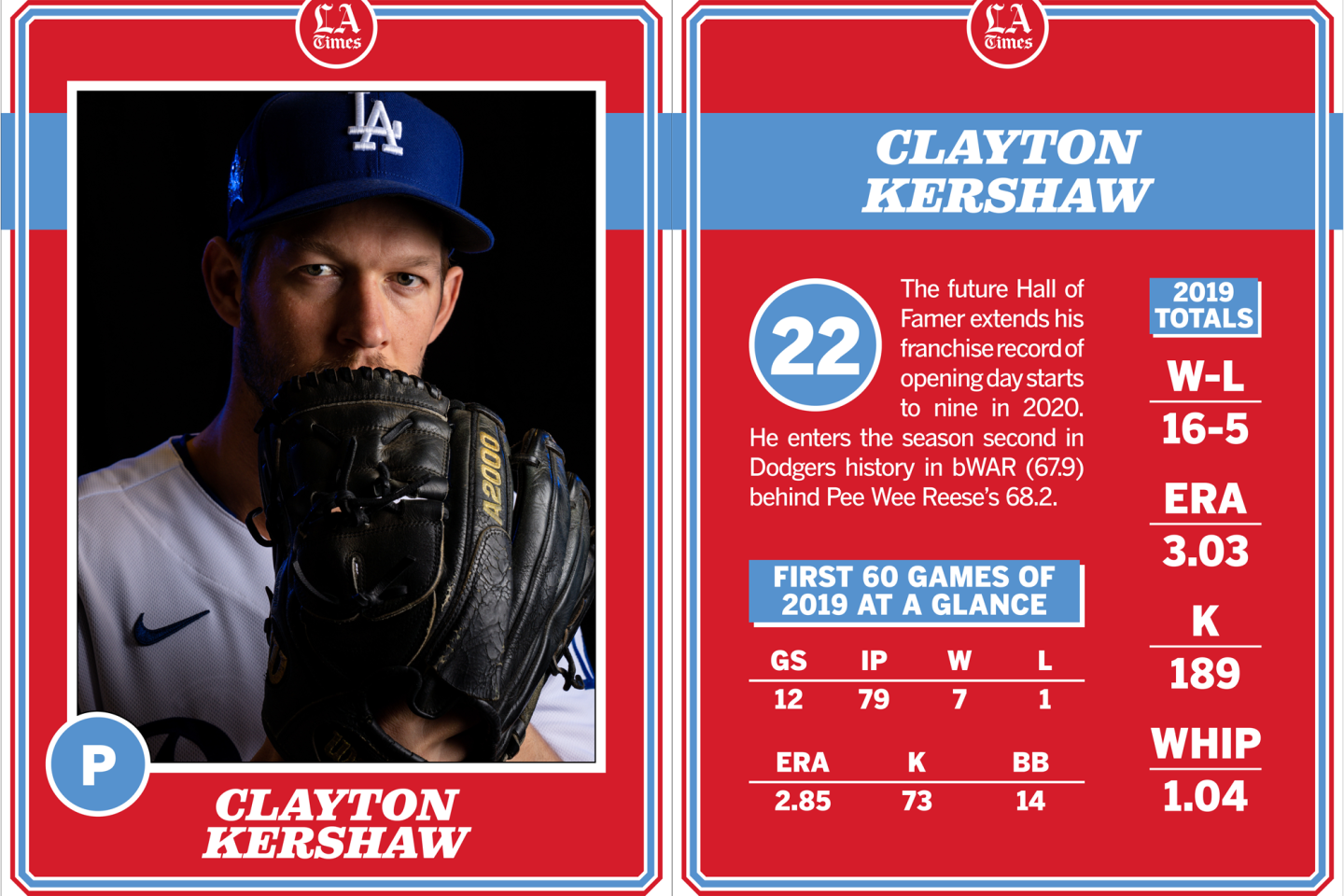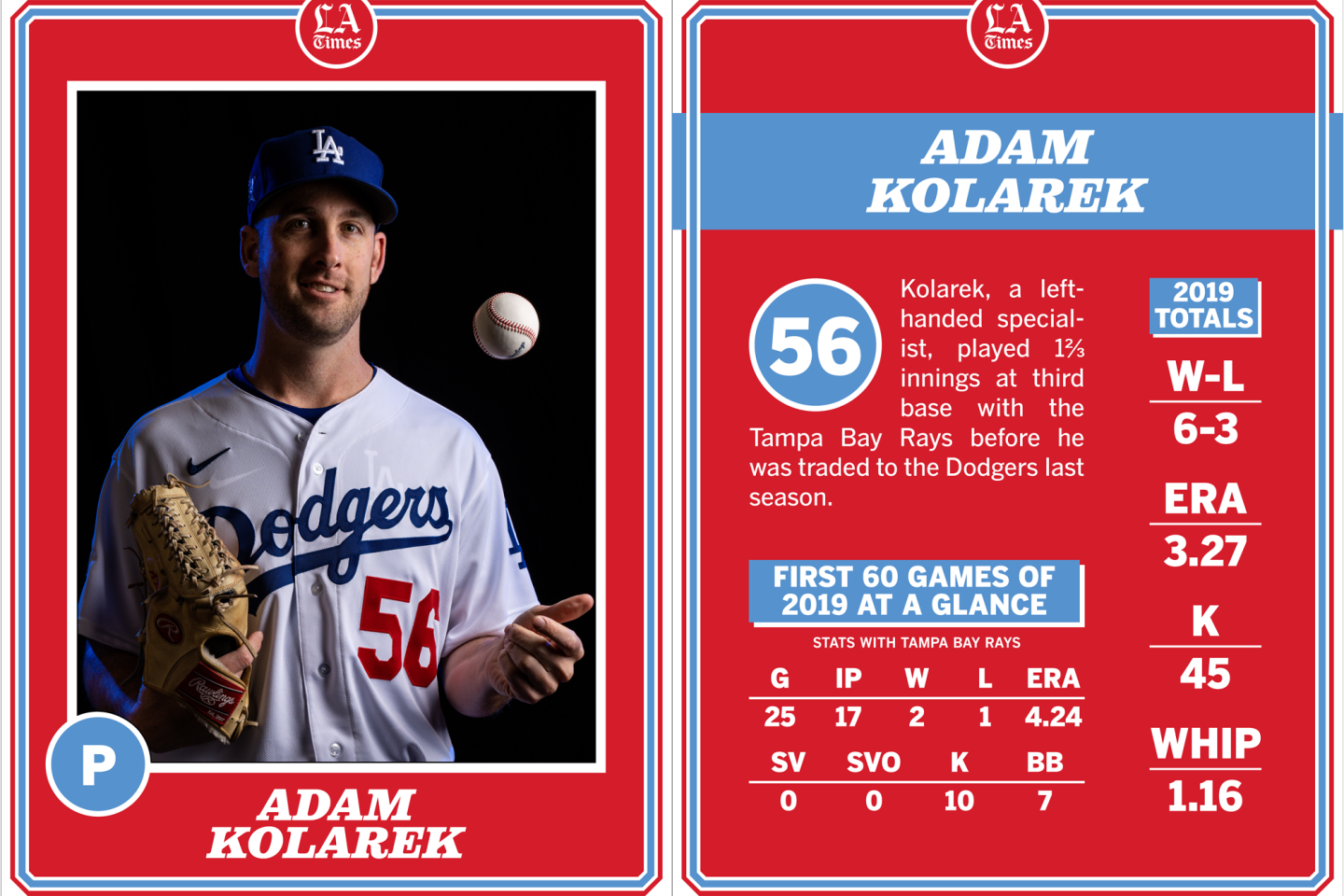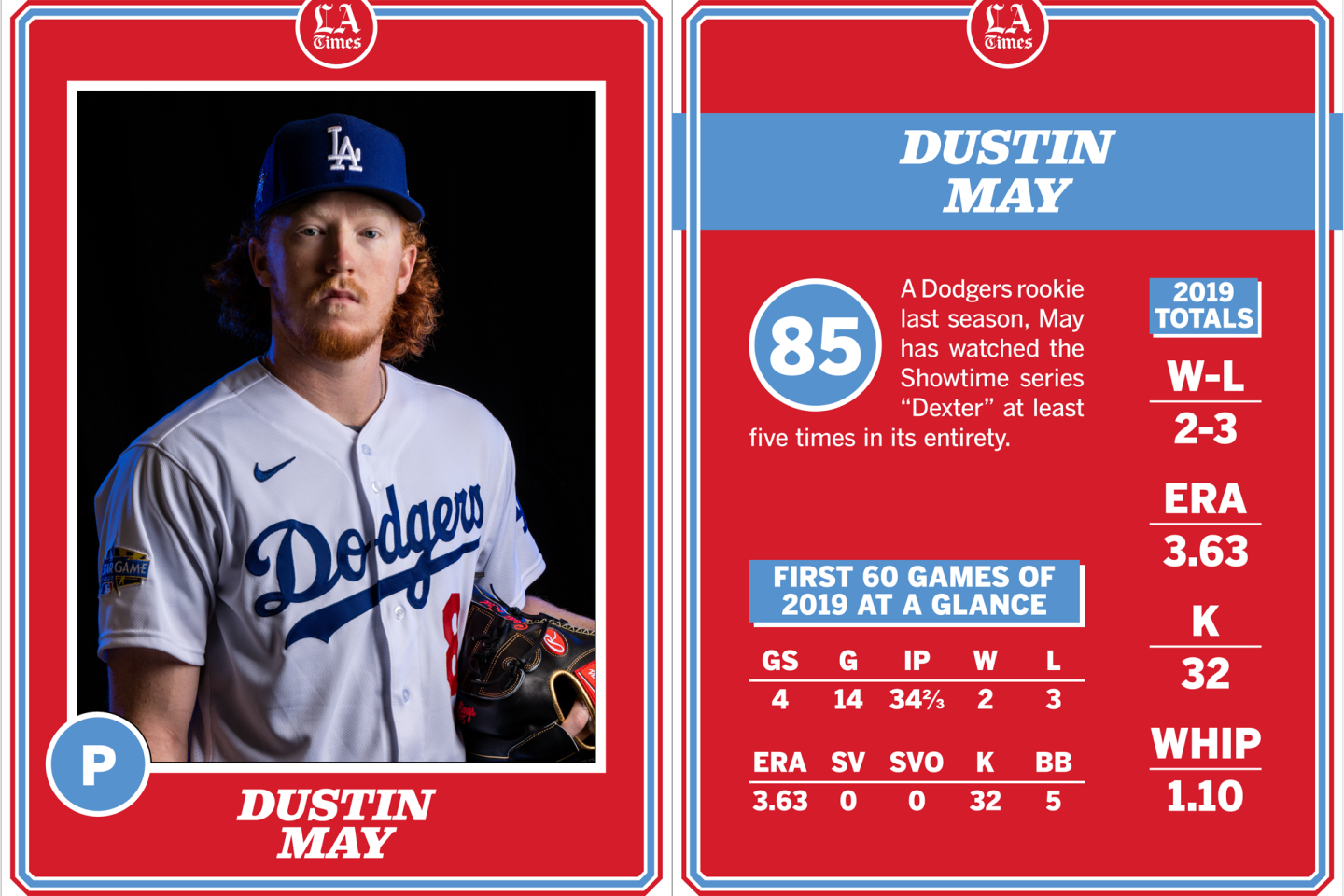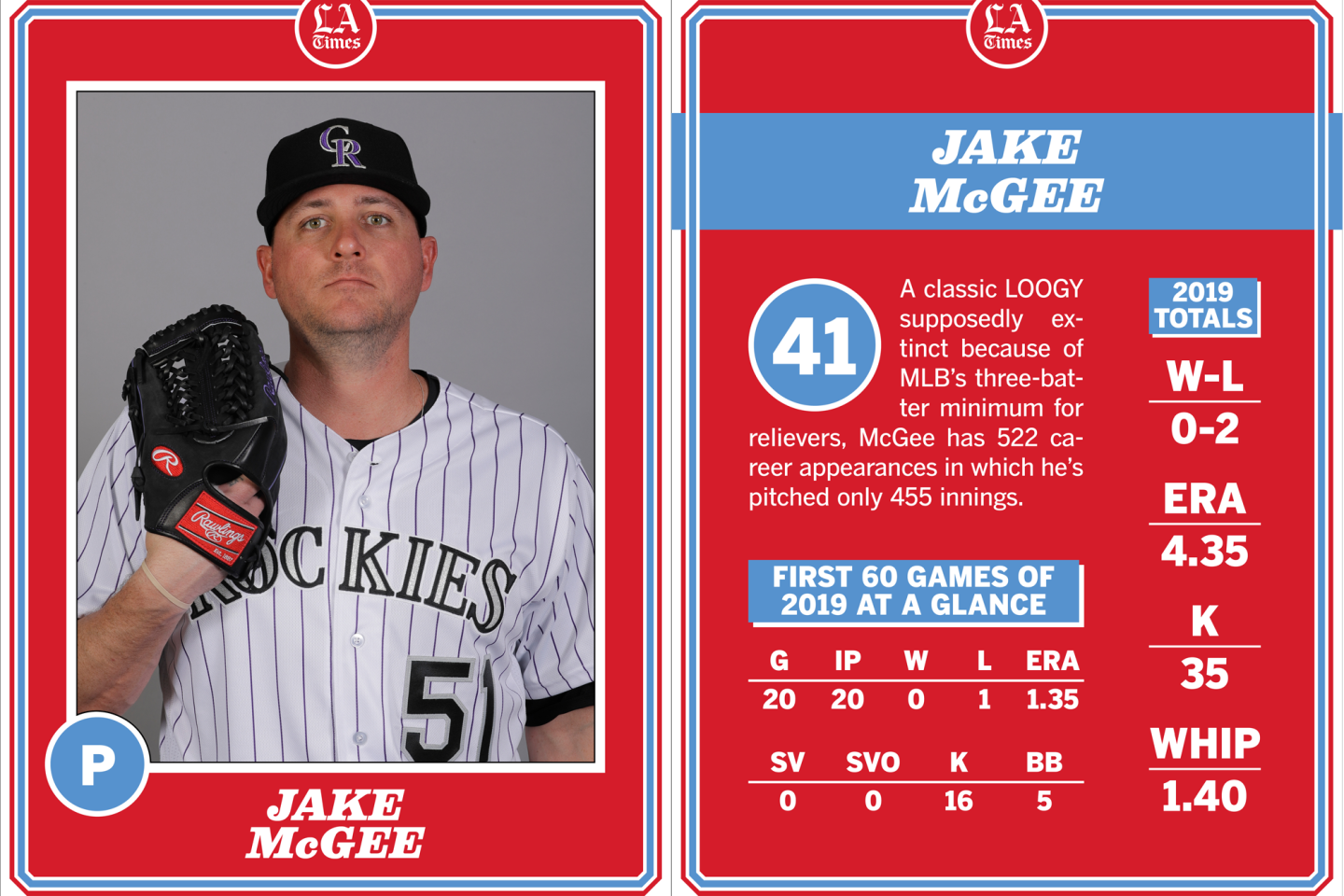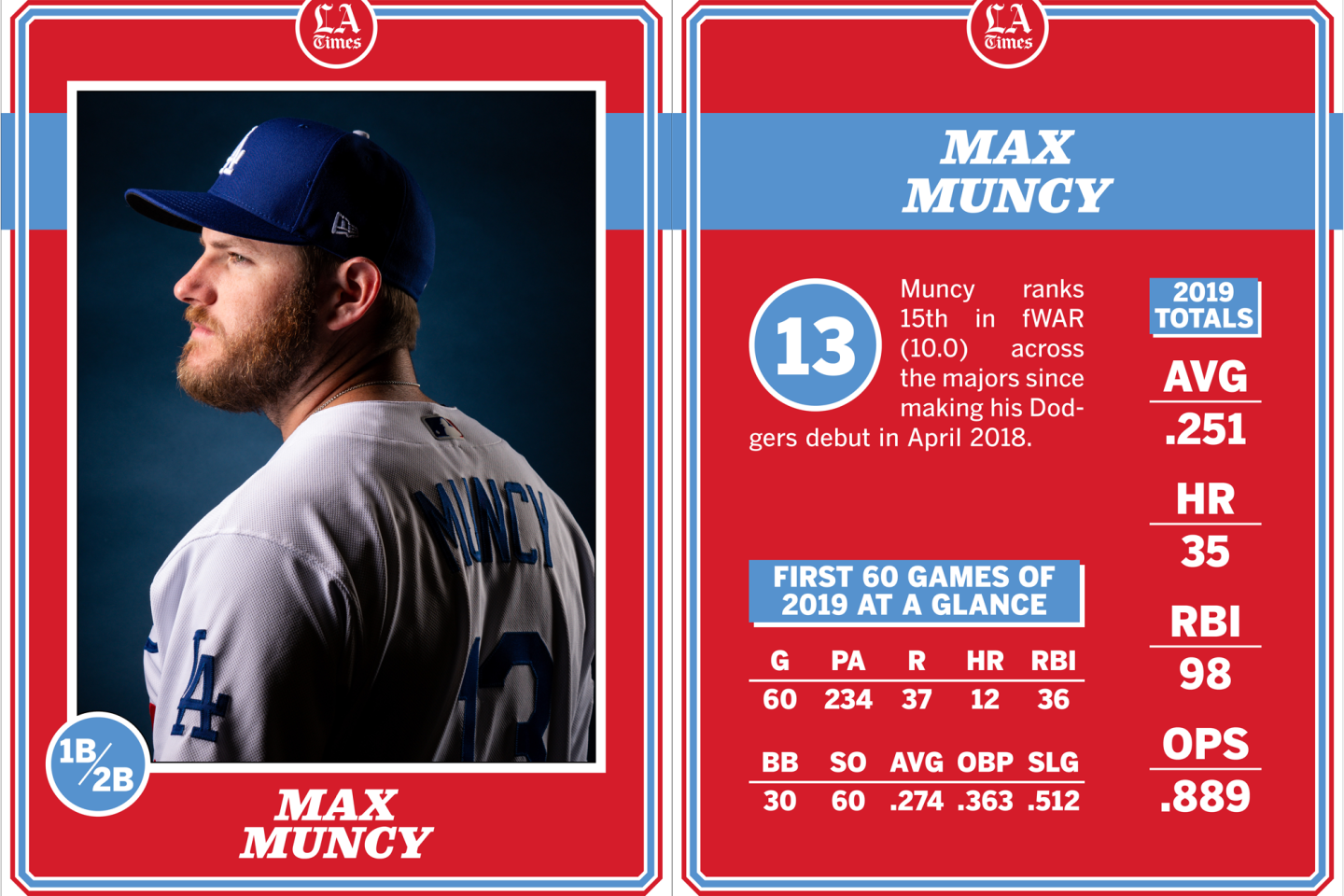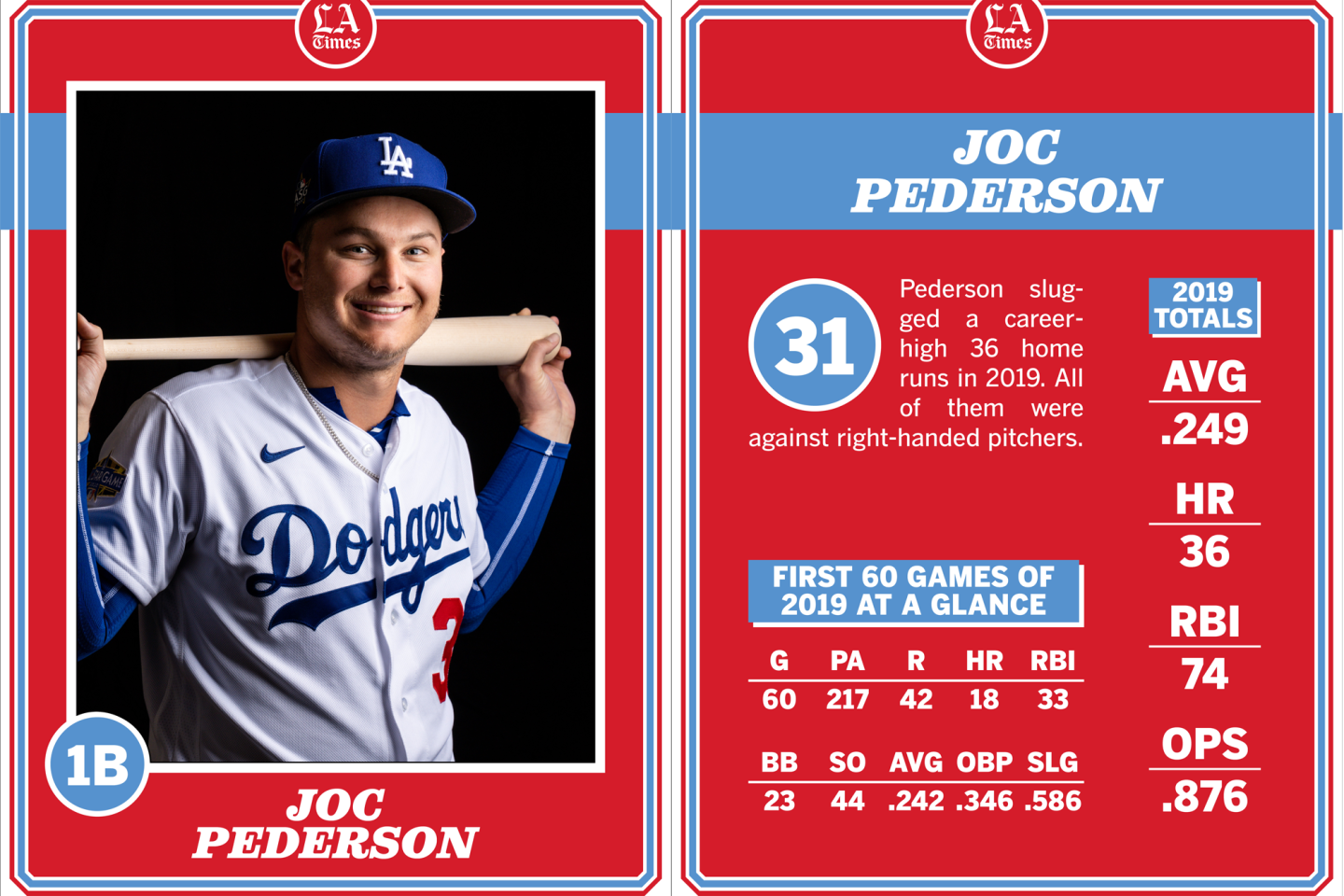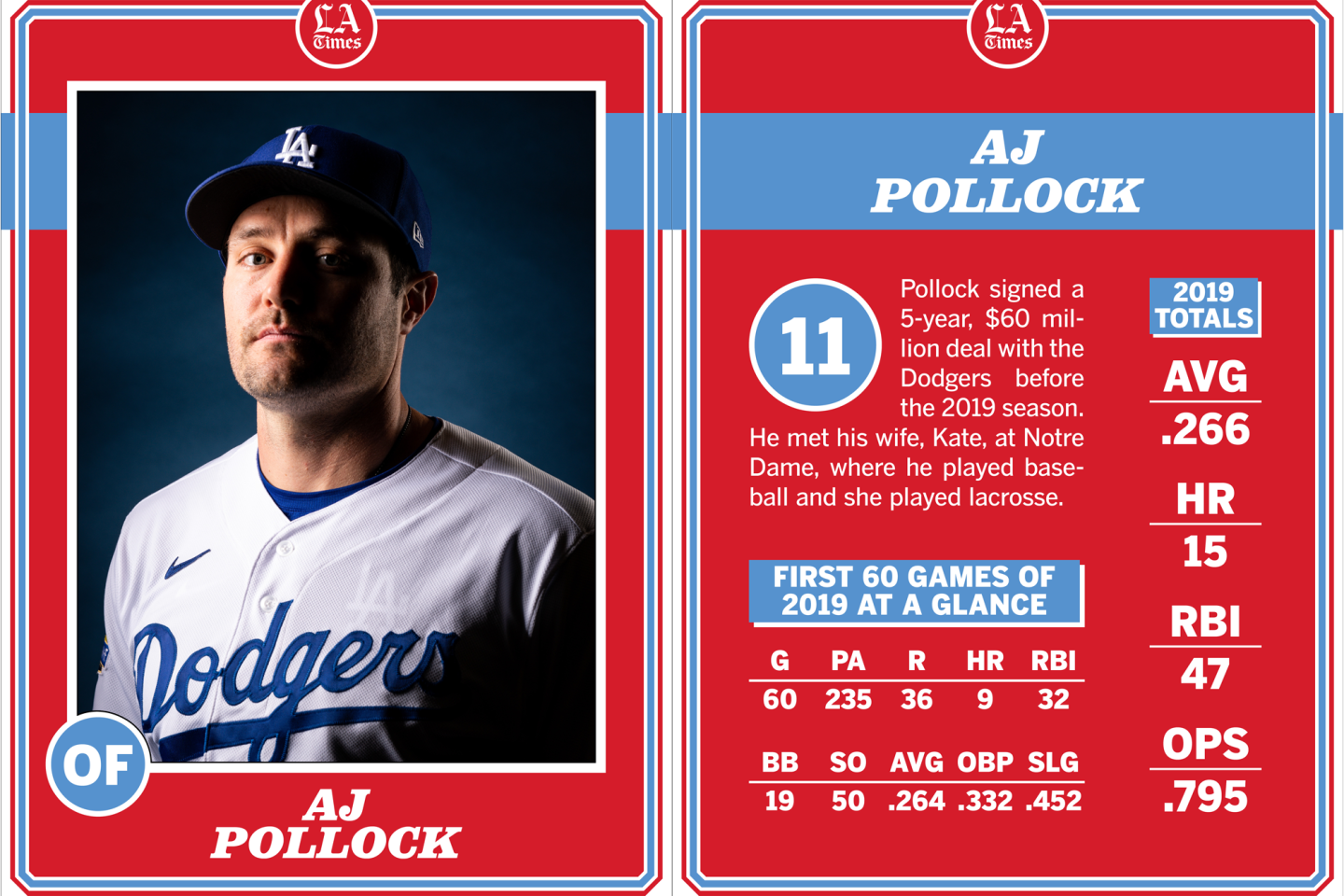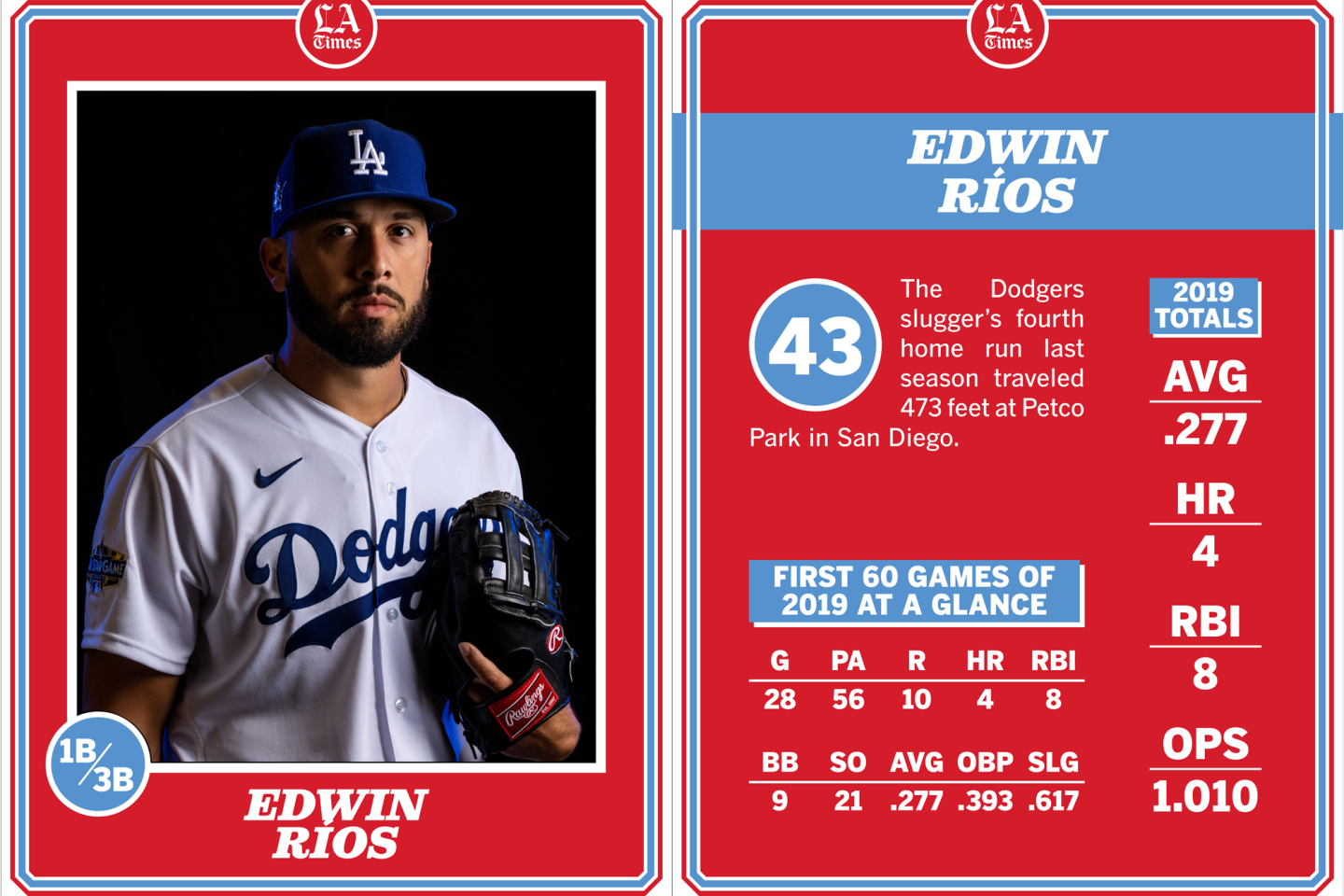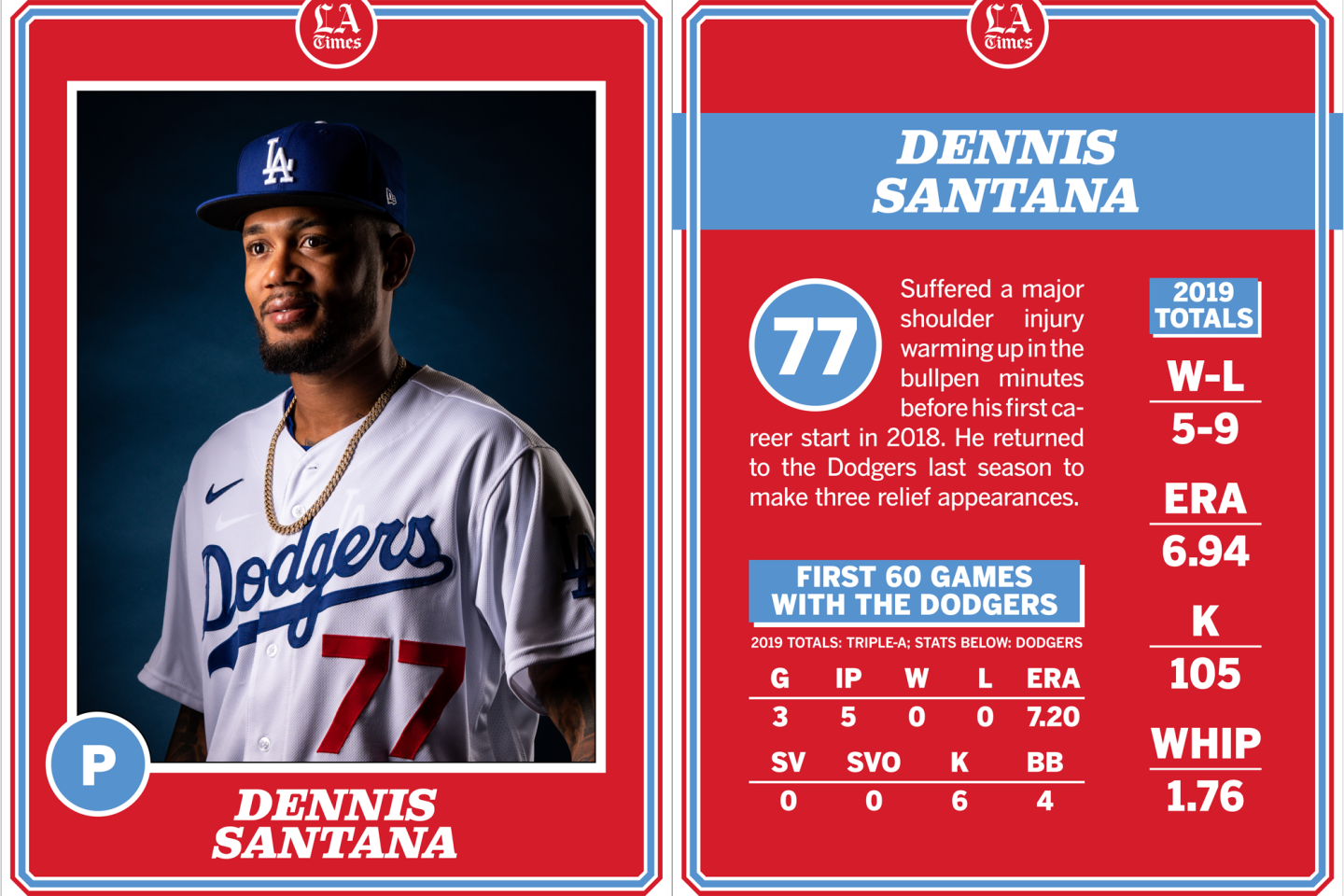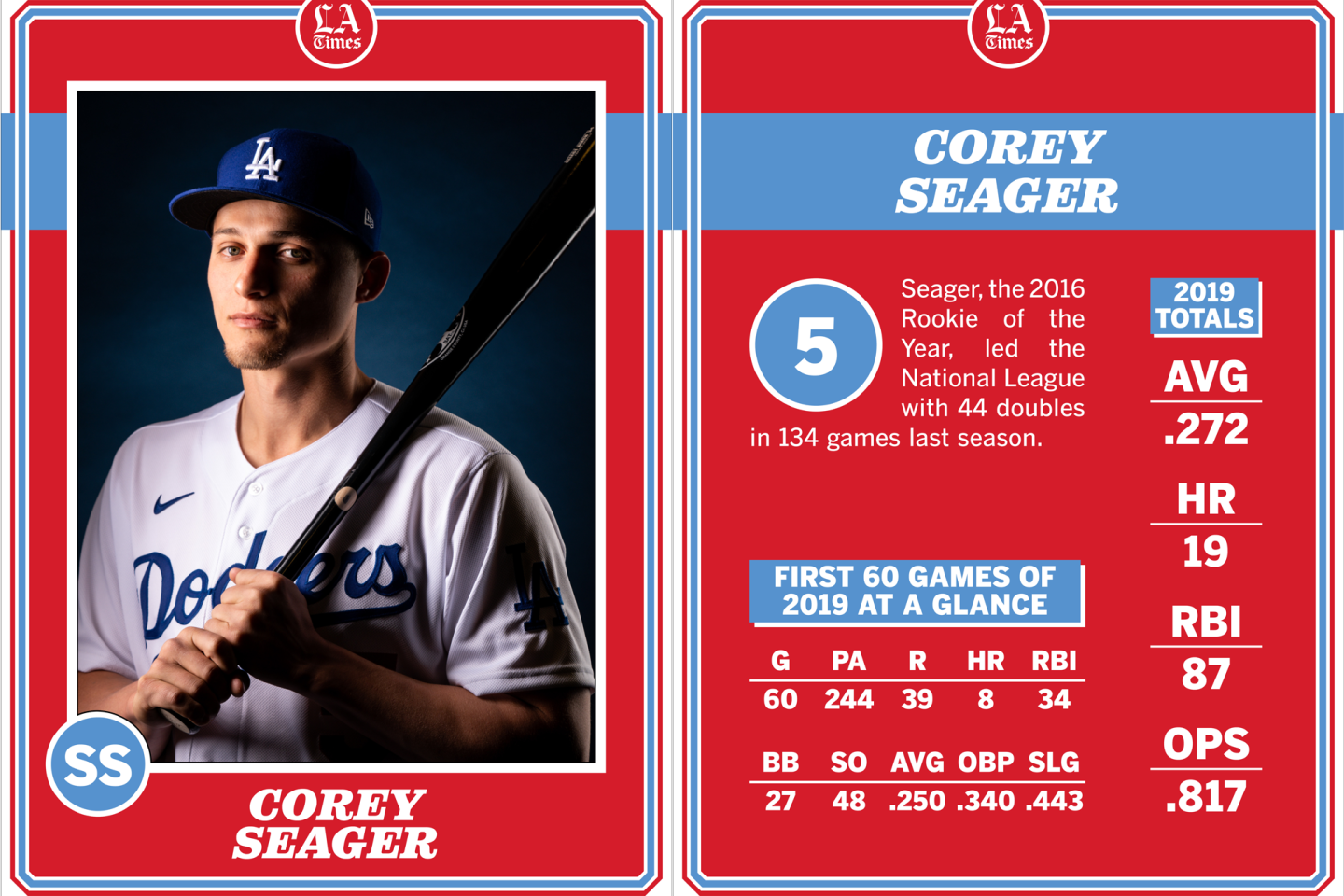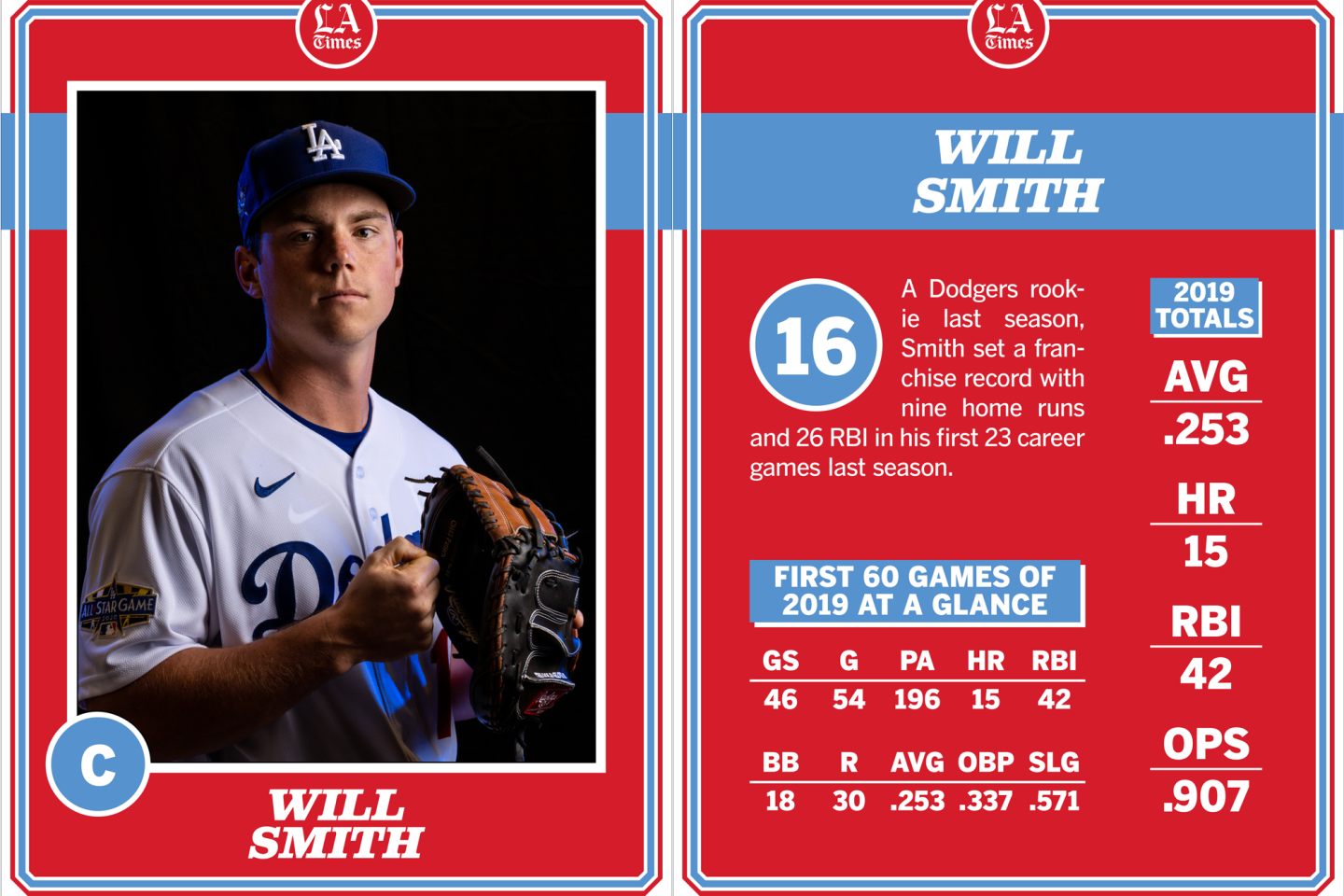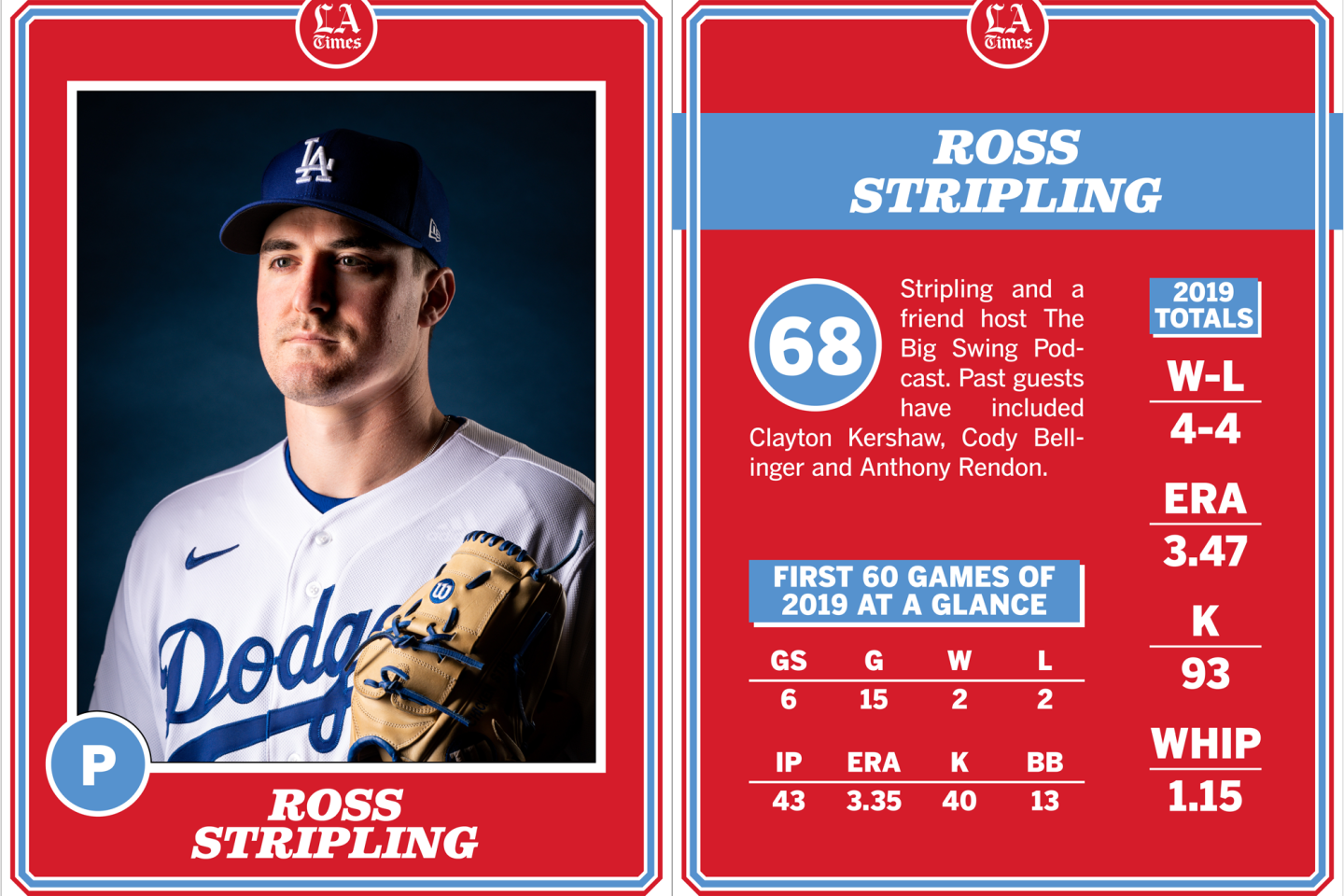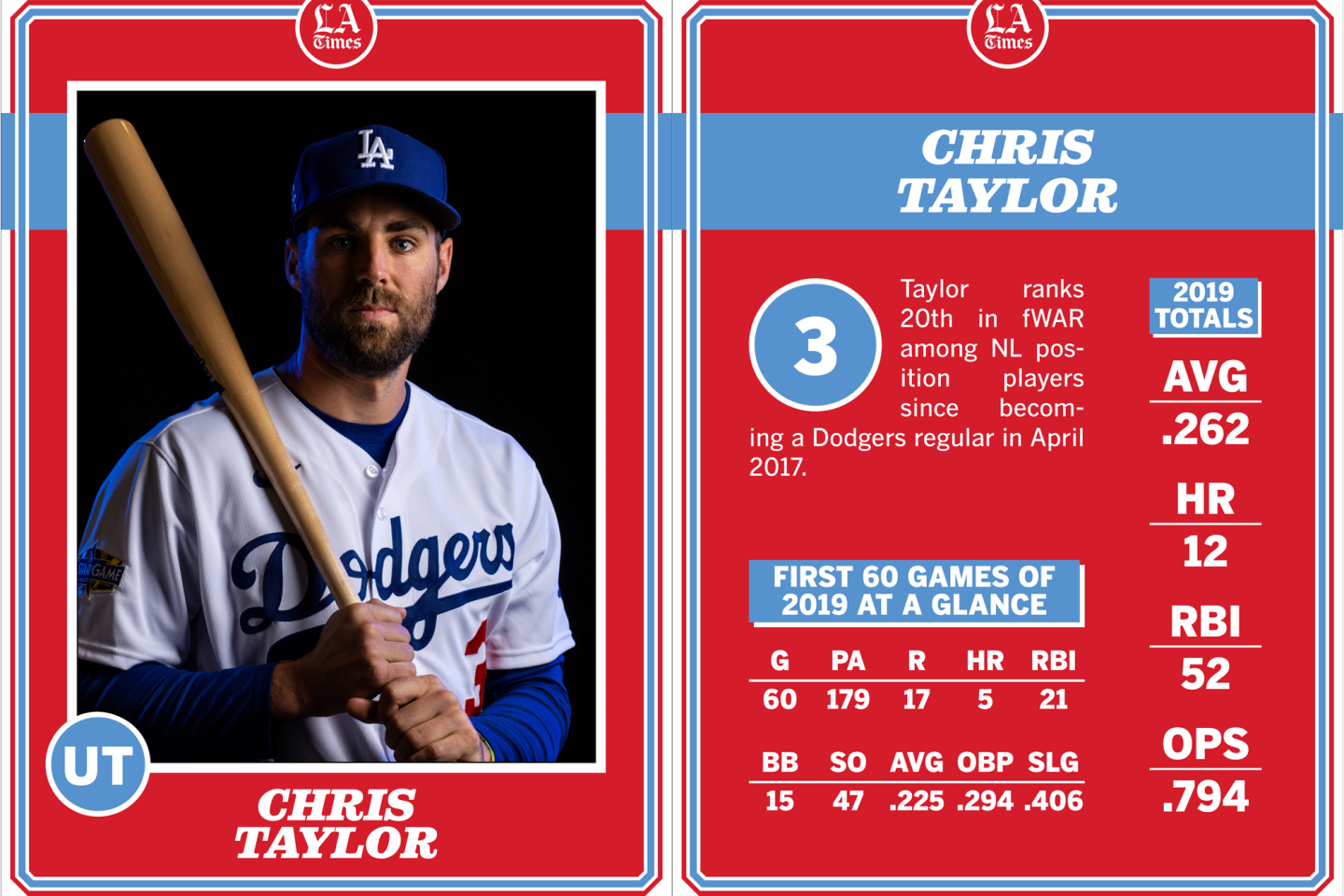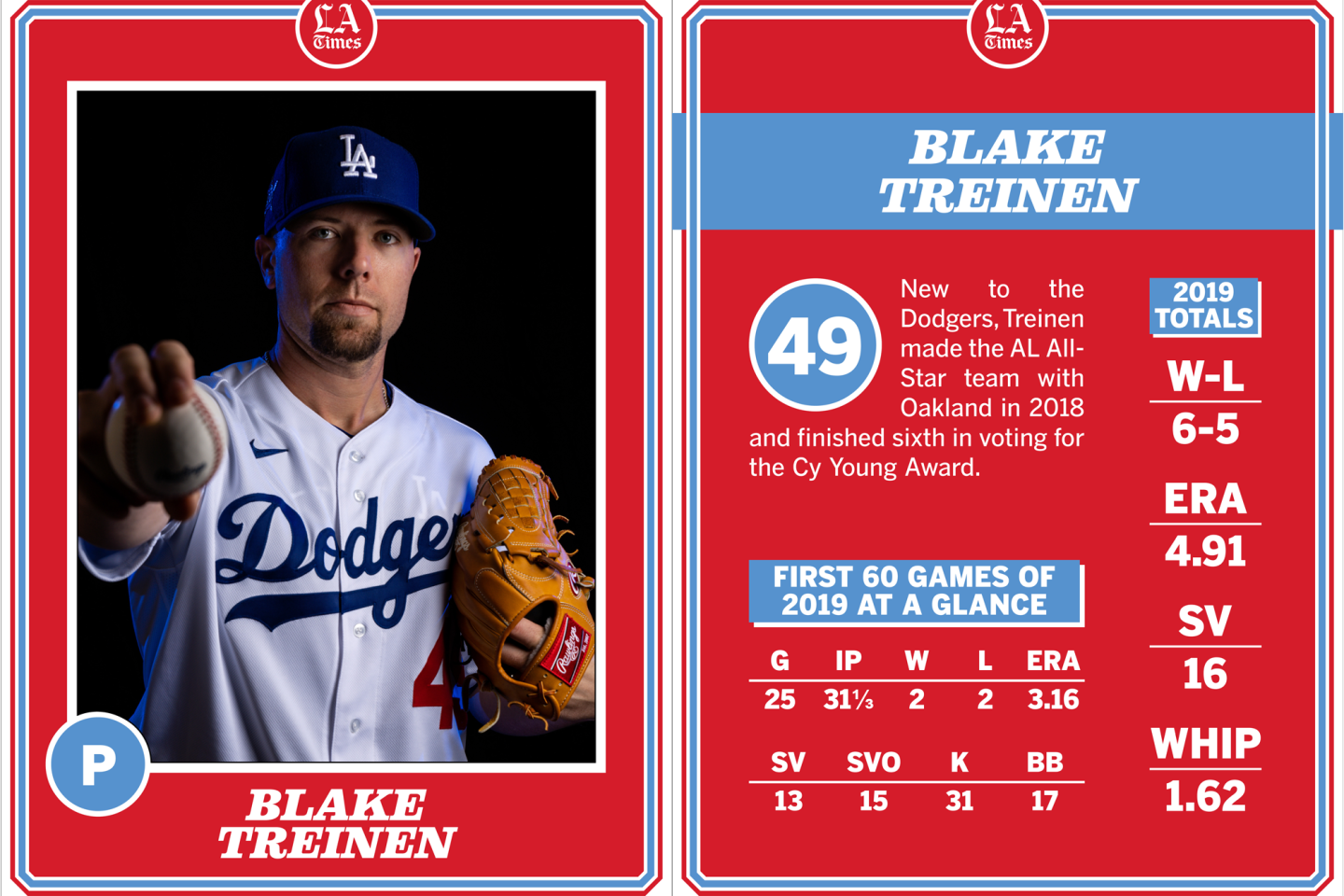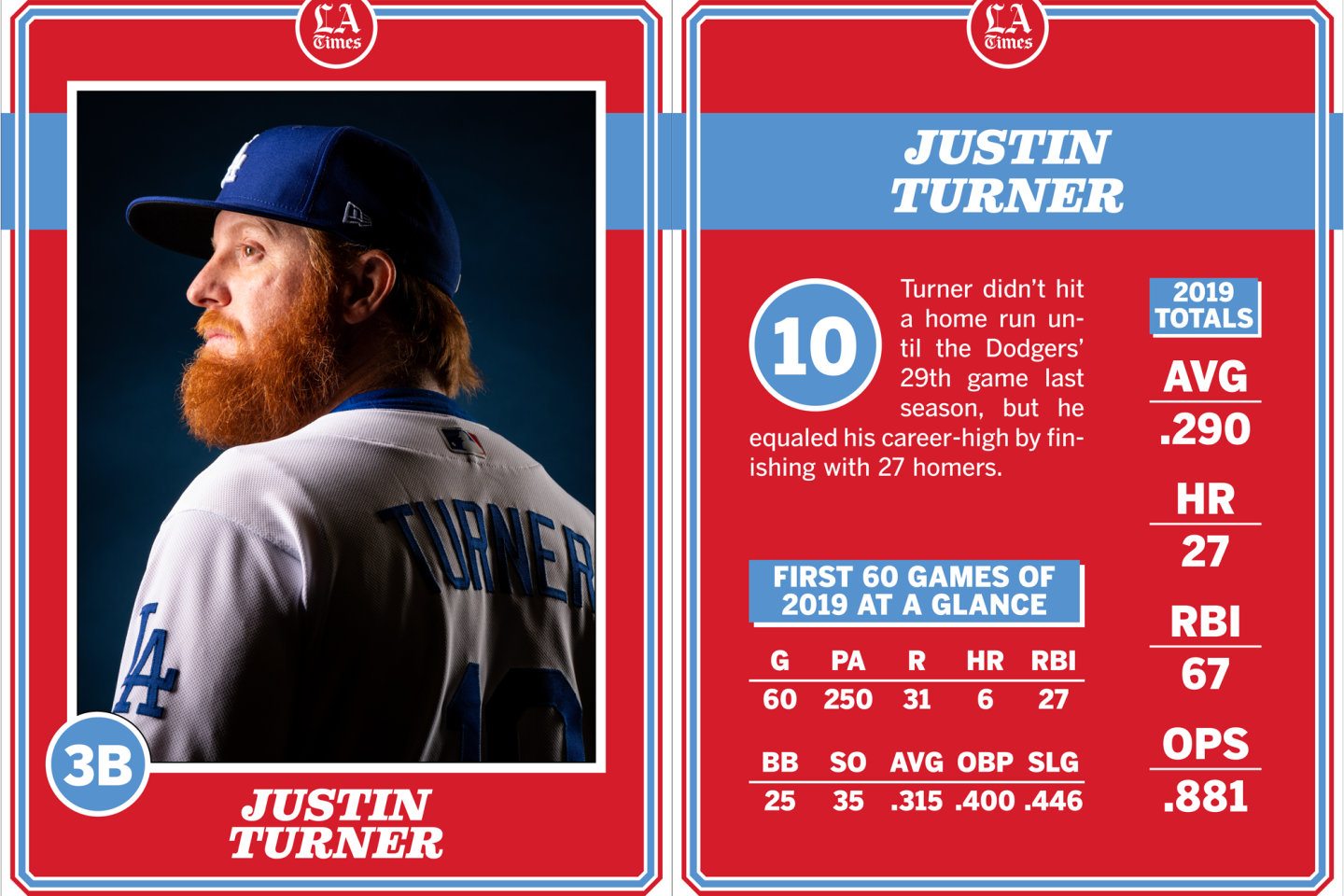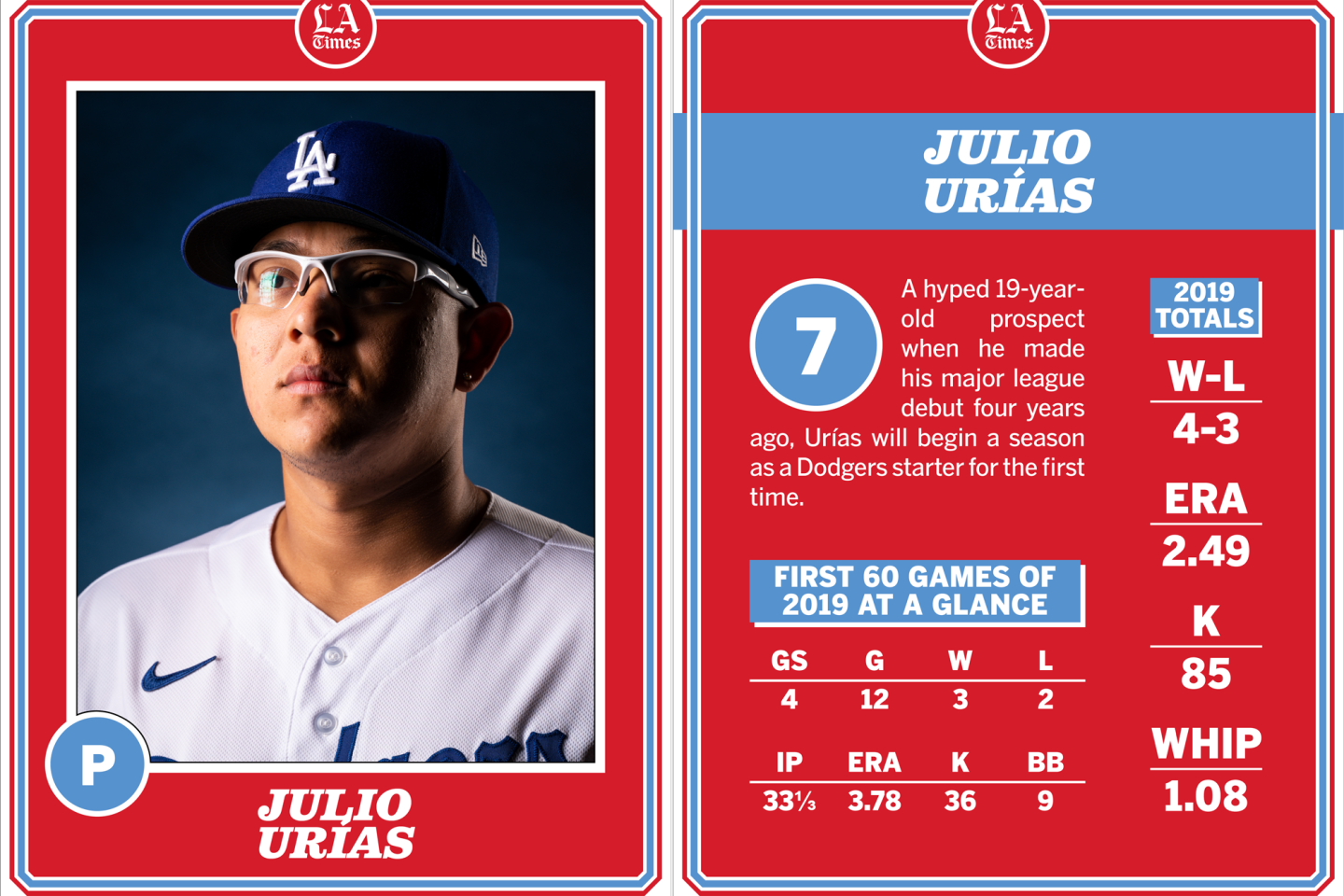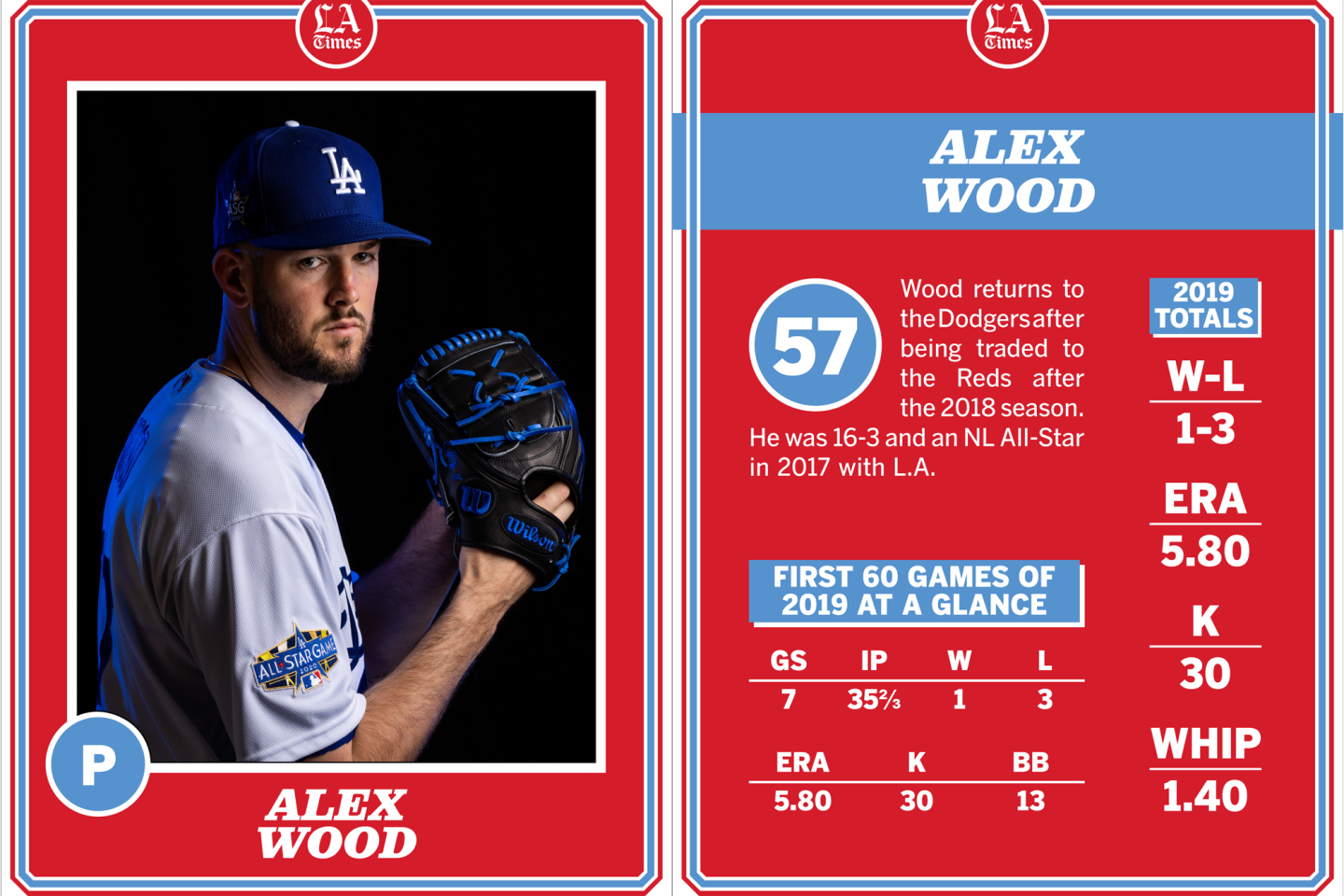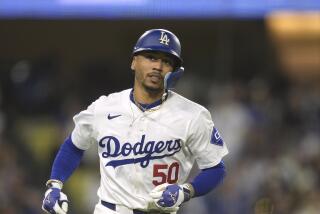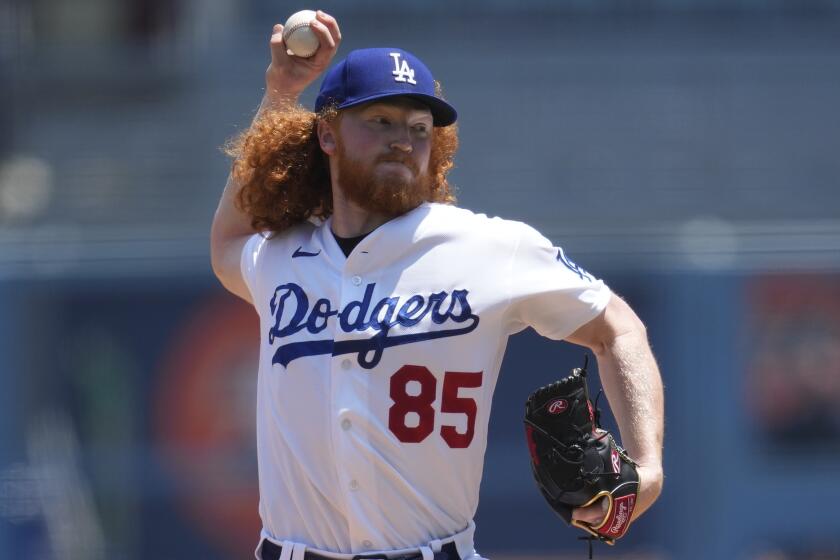Column: Baseball’s pandemic-stricken return creates Dodger Stadium’s weirdest opening day
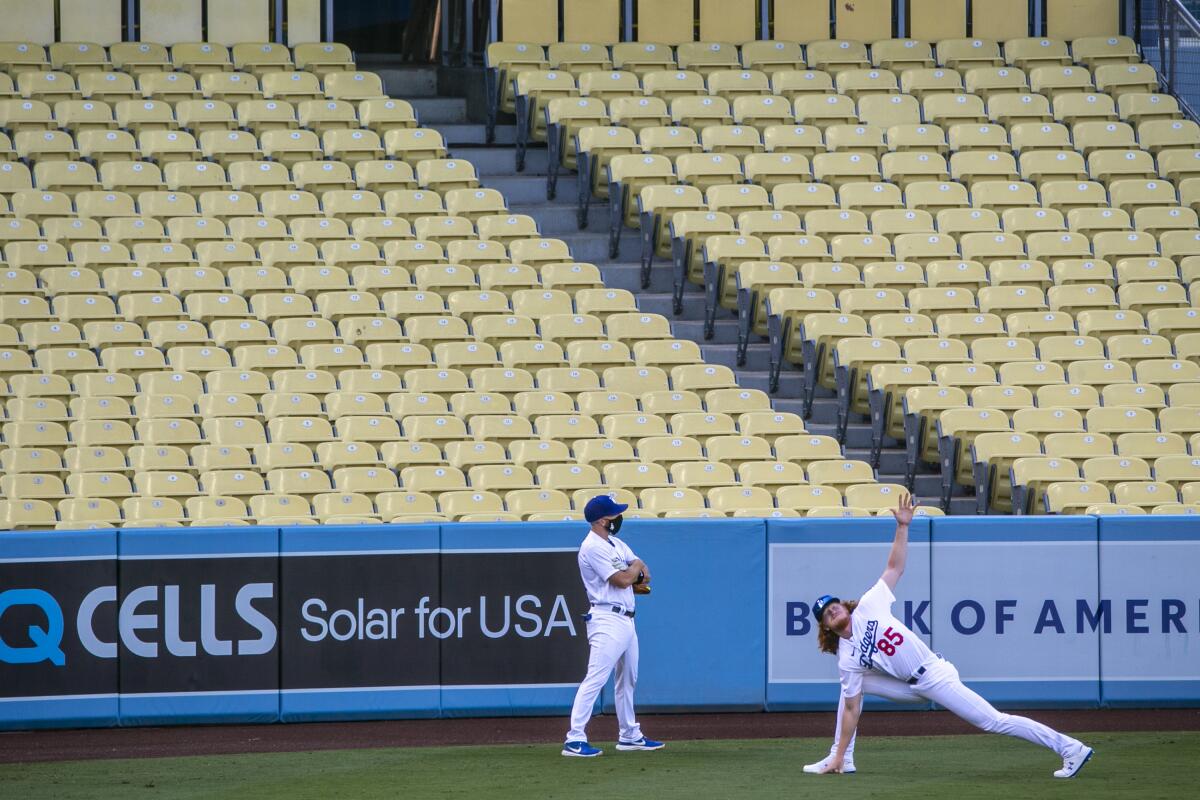
Take me out to the … the weirdest ballgame ever.
There were no peanuts. There was no Cracker Jack. There was nobody to root, root, root for the home team.
In a Chavez Ravine populated by cardboard fans and ringing with piped-in cheers, the Dodgers opened their 2020 season Thursday night against the San Francisco Giants with one thing legitimately in abundance.
“There’s a lot of strange going on right now,” said Dodgers third baseman Justin Turner, his red beard cloaked in a blue mask.
After a four-month shutdown because of the coronavirus, official baseball returned to pandemic-restricted Dodger Stadium, where the team’s 63rd Los Angeles opening day was certainly the most bizarre. The coronavirus transformed this traditionally festive occasion into something that felt like a sandlot game played in the middle of a ghost town.
There was no joyous noise. There was no popcorn smell. There was none of the annual sweaty buzz of a crowded concourse celebrating a spring rebirth. This column was written from a barren party table on a vacant loge level in front of a shuttered beer stand.
Dodgers right fielder Mookie Betts took a knee during the national anthem before Thursday’s season opener against the San Francisco Giants.
Organist Dieter Ruehle furiously played “Welcome Back,” to an empty field.
Announcer Todd Leitz excitedly introduced each team’s roster to an empty stadium.
For the pregame ceremonies, the players jogged to the foul line and stood six feet apart and appeared extremely bewildered. When the Dodgers’ names were called, instead of waving to a crowd that wasn’t there, they mostly looked down at their hands.
A wonderful national anthem was sung by Dodger Stadium favorite Keith Williams Jr., but instead of his giant presence appearing behind home plate, he was a mere speck somewhere beyond the center field fence.
There was no ceremonial first pitch. There was nobody around to throw one. The area around the dugouts, usually crowded and rocking on opening day, contained only a few wandering players in masks.
On the game’s first play, the Dodgers’ Corey Seager booted a grounder from the Giants’ Mike Yastrzemski, yet there were no boos, no murmurs, and Seager put his head down amid sullen silence.
When rookie starter Dustin May worked out of a first-inning jam, the loudspeakers piped in cheers of relief, but they sounded strange coming from seats that were either empty, covered in tarps, or filled with cardboard photos of fans. It was like as if Chavez Ravine had been overrun with some invisible force.
When the Giants left fielder Alex Dickerson made a running catch of Cody Bellinger’s fly ball to end the first, there were finally real, audible hoots. They were coming from his teammates in the dugout. You could hear every boyish syllable. While witnessing the greatest players in the world, one felt like a parent watching Little Leaguers.
“I would say, different,” Dodgers manager Dave Roberts said. “It’s certainly different getting into the ballpark and not having to wait and sit through traffic.”
Mookie Betts’ game-changing skill set could be found in the seventh inning of their season-opening 8-1 win over the Giants on Thursday.
Amid all the strangeness, however, there was baseball, with the Dodgers doing their annual baseball thing of adjusting to Clayton Kershaw’s back stiffness. The left-hander who has traditionally owned this moment was supposed to make his ninth opening-day start, but he injured himself in a workout Tuesday and May was summoned as a last-minute replacement, making him the first Dodgers rookie opening-day starter since Fernando Valenzuela replaced injured Jerry Reuss in 1981. The Dodgers won a World Series championship that season, so maybe it was an omen. Then again, maybe it just fit into the bizarre beginning of what will be a bizarre 60-game schedule.
Baseball doesn’t own this season. The virus does. There won’t be any fans anywhere. The players are so socially distanced that each team has constructed extra dugouts. Some wear masks not only on the bench, but while playing in the game. People are going to get sick. The season might not survive. The Dodgers might never even have a chance at ending their 32-year championship drought. There are going to be more than two months of surreal nights just like Thursday.
Turner told the story of a pregame hitters’ meeting that had lasted 15 minutes before it was suddenly paused.
“In the middle of it, the room, we had to disperse … for a couple of minutes … then come back in to make sure we were in line with the procedures and protocols for contact tracing,” he said.
But Turner felt that it was a victory just being here.
“This is a day that if I’m being completely honest, I wasn’t 100% certain we were going to see happen this year,” said Turner in a pregame videoconference call. “The fact that we are here, the sacrifices and choices and responsibility that players across the league have taken to ensure we’re getting to this opening day is unbelievable.”
Also give baseball credit for using opening day to advocate for social justice. There may have been silence at Dodger Stadium on Thursday, but the pregame tribute spoke volumes.
There was a scoreboard video featuring players advocating for social reform while repeating “Black lives matter.” Then, as the two teams lined up along the foul lines, the players briefly kneeled while holding a long black ribbon. In a perfect ending to the prologue, the scoreboard showed a video of Rachel Robinson, widow of Jackie Robinson, saying, “It’s time for Dodger baseball.”
For the Dodgers, it was also a time for a personal statement that became a powerful teammate gesture.
During the national anthem, the newly signed Mookie Betts was the one Dodger who kneeled. After a moment, Cody Bellinger reached down and put a hand on his left shoulder. Max Muncy then put a hand on his right shoulder.
Standing nearby at attention was Roberts. Three years ago, after Oakland Athletics catcher Bruce Maxwell took knee during the anthem, Roberts, whose father was in the Marines said, “I’d have a problem” with that gesture.
Yet, before Thursday’s game, Roberts said had changed his view and supported all forms of expression by the Dodgers during the anthem.
“I realized that standing at attention, it’s not mutually exclusive to your thoughts on social justice,” he said. “As I’ve learned, I just believe that you’re not just trying to disrespect the soldiers. So, yeah, I have evolved and changed.”
After the anthem, Betts rose to his feet and the Dodgers took the field with the same swagger of the powerful team that has won seven consecutive West Division championships. They went on to defeat the Giants, 8-1.
“Every year … we have high standards and high expectations and the goal is legitimately to win a World Series,” Turner said. “I know a lot of teams talk about it, but every year I’ve been here I think it’s a realistic goal for us, and we’ve put ourselves in a position to win a championship, and nothing has changed this year.”
Nothing, and everything.
More to Read
Are you a true-blue fan?
Get our Dodgers Dugout newsletter for insights, news and much more.
You may occasionally receive promotional content from the Los Angeles Times.

